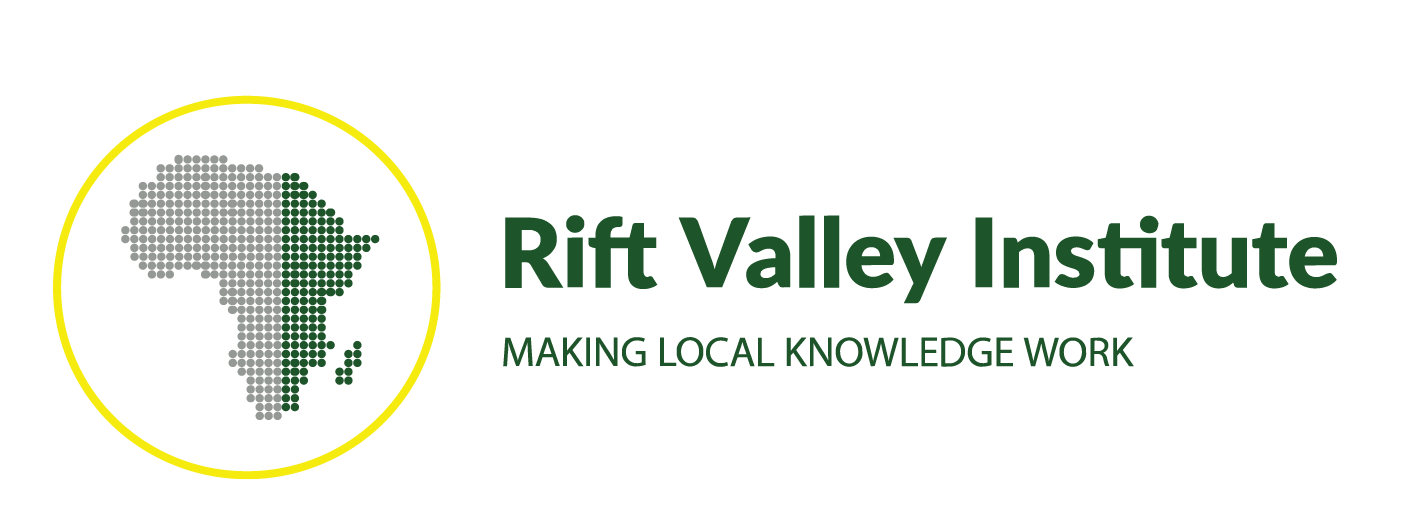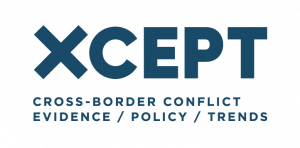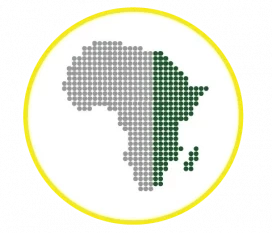Six Years of Cross-Border Insights
From 2019 to 2024, the Rift Valley Institute (RVI) has deepened its understanding of conflict-affected border regions in the countries of the Horn of Africa (Kenya, Somalia, Ethiopia and Eritrea) as well as Sudan and South Sudan. This timeline highlights key research on migration, labour and cross-border economies, shaping policy and peace efforts as the XCEPT project concludes.
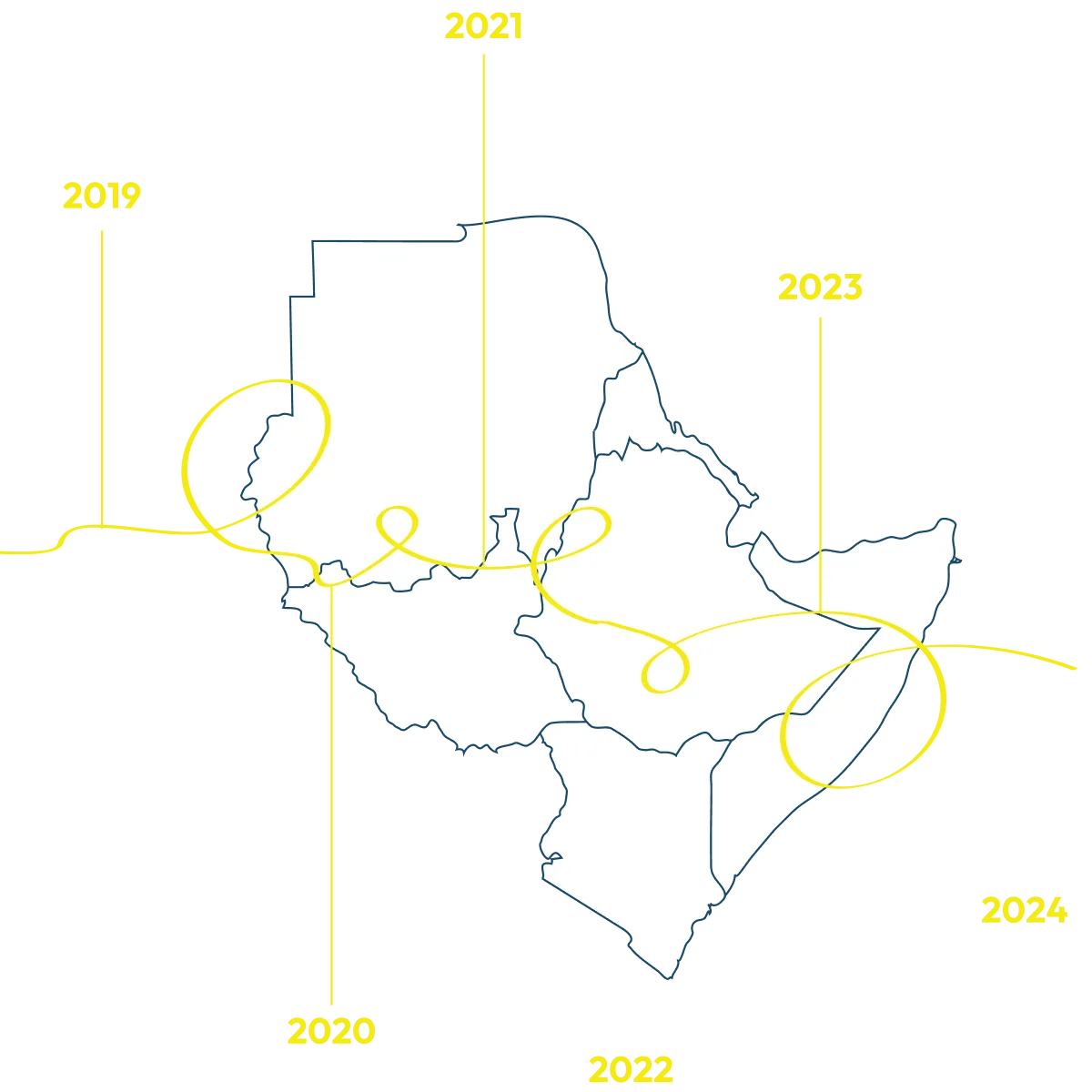
Six Years of Cross-Border Insights
From 2019 to 2024, the Rift Valley Institute (RVI) has deepened its understanding of conflict-affected border regions in the countries of the Horn of Africa (Kenya, Somalia, Ethiopia and Eritrea) as well as Sudan and South Sudan. This timeline highlights key research on migration, labour, and cross-border economies, shaping policy and peace efforts as the XCEPT project concludes.
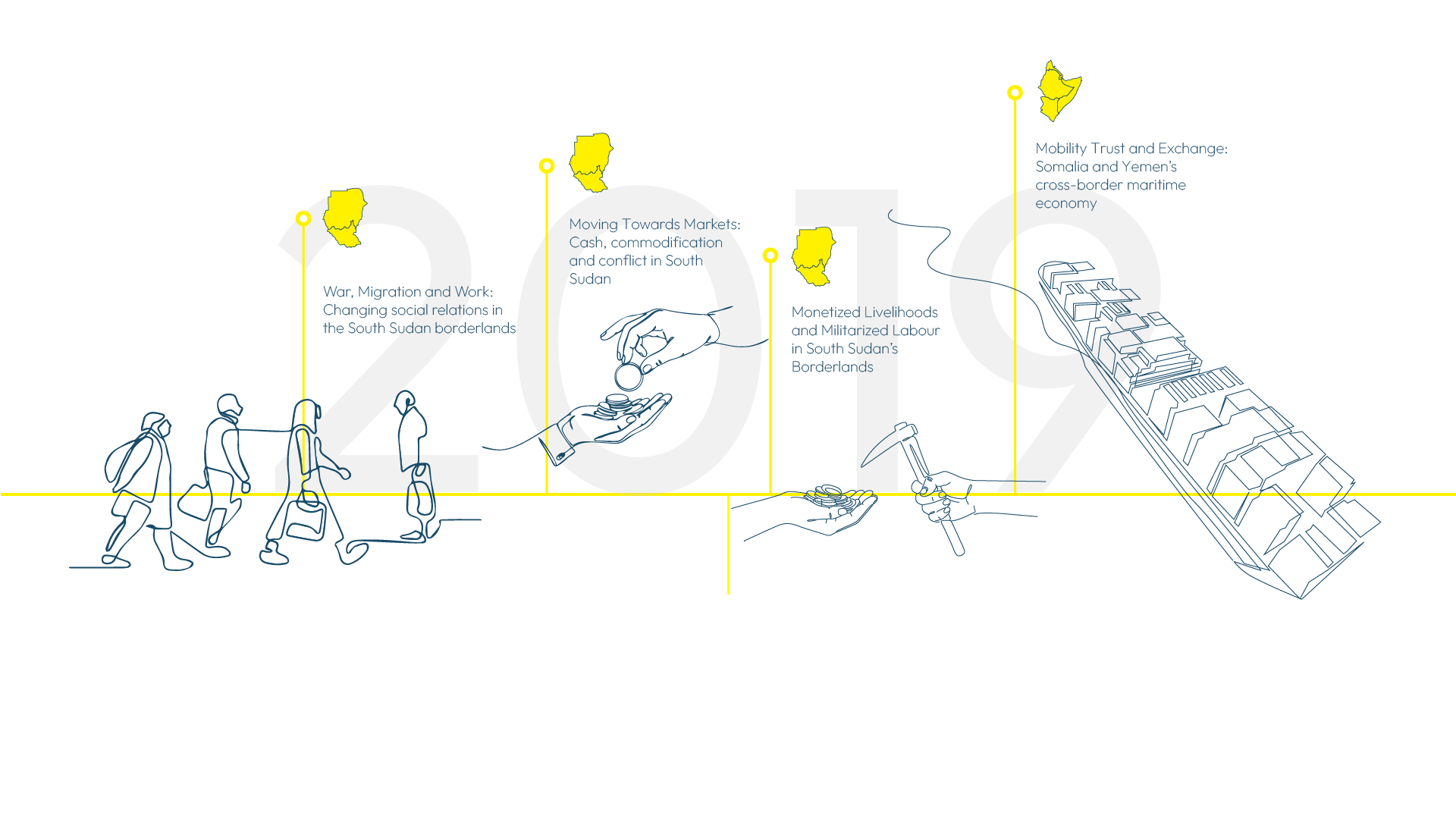
2019: Laying the Groundwork
In 2019, RVI explored the economic and labour dynamics in conflict-affected regions. Our research focused on the cross-border maritime economy between Somalia and Yemen, monetized labour systems in South Sudan, and South Sudan’s transition towards a market economy.
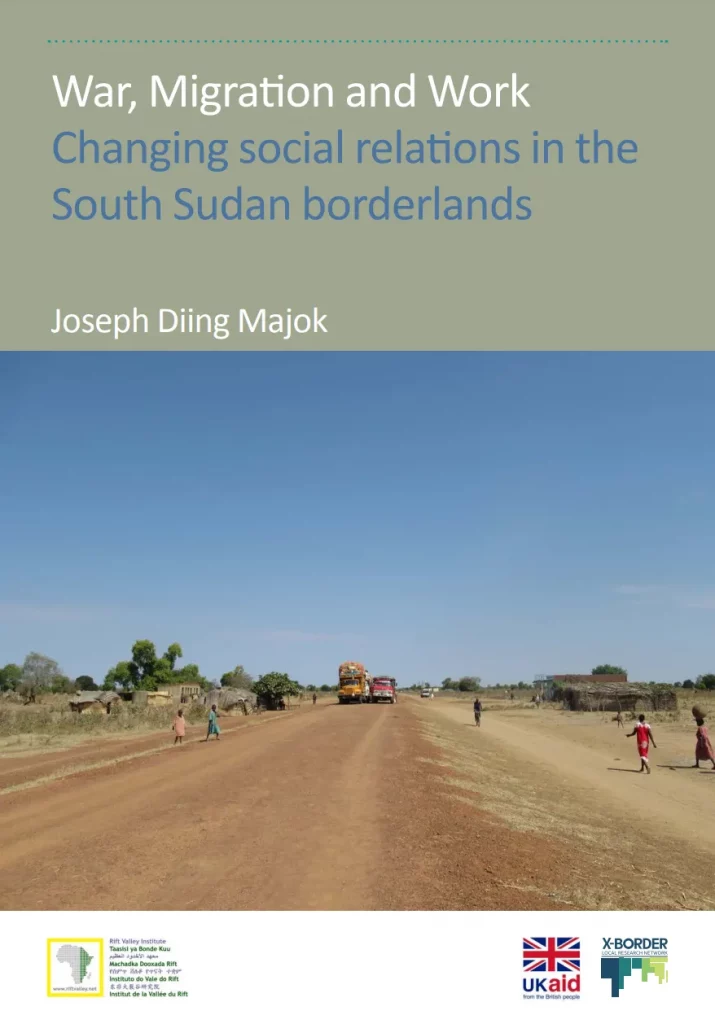
Briefing Paper
2019
War, Migration and Work
Changing social relations in the South Sudan borderlands
SUDAN AND SOUTH SUDAN
War, Migration and Work outlines how the changing economy has affected social relations in the Northern Bahr el-Ghazal borderlands, particularly between the old and the young, and men and women. The result is a fraying social system, where intra-family…
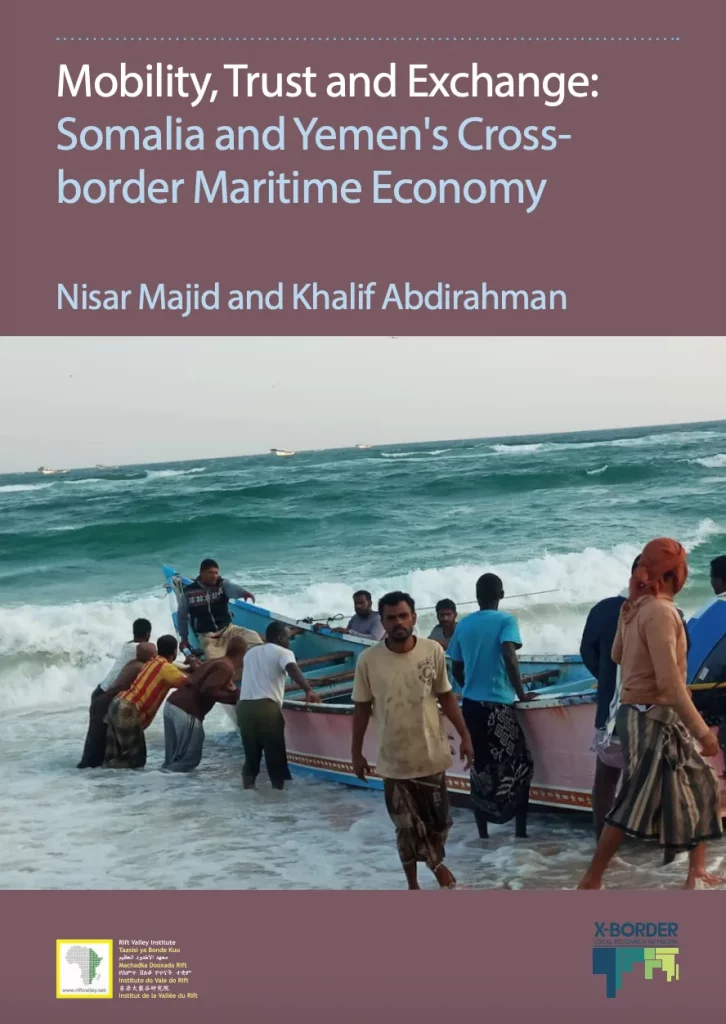
Research Paper
2019
Mobility, Trust and Exchange
Somalia and Yemen’s cross-border maritime economy
Horn of Africa
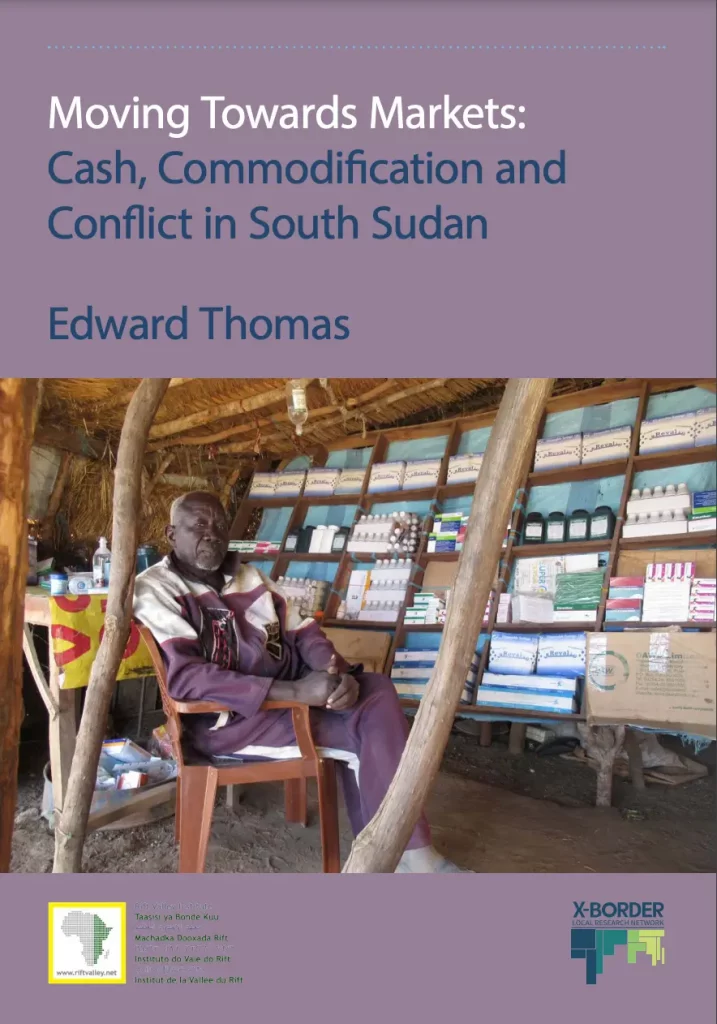
Research Paper
2019
Moving Towards Markets
Cash, commodification and conflict in South Sudan
SUDAN AND SOUTH SUDAN
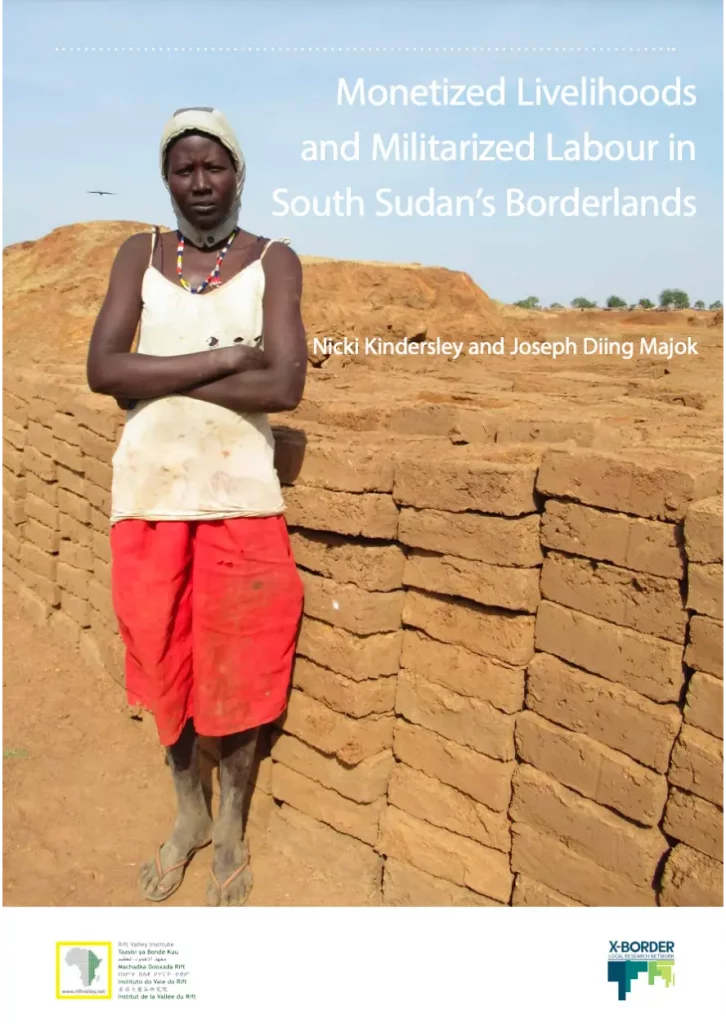
Research Paper
2019
Monetized Livelihoods and Militarized Labour in South Sudan’s Borderlands
SUDAN AND SOUTH SUDAN
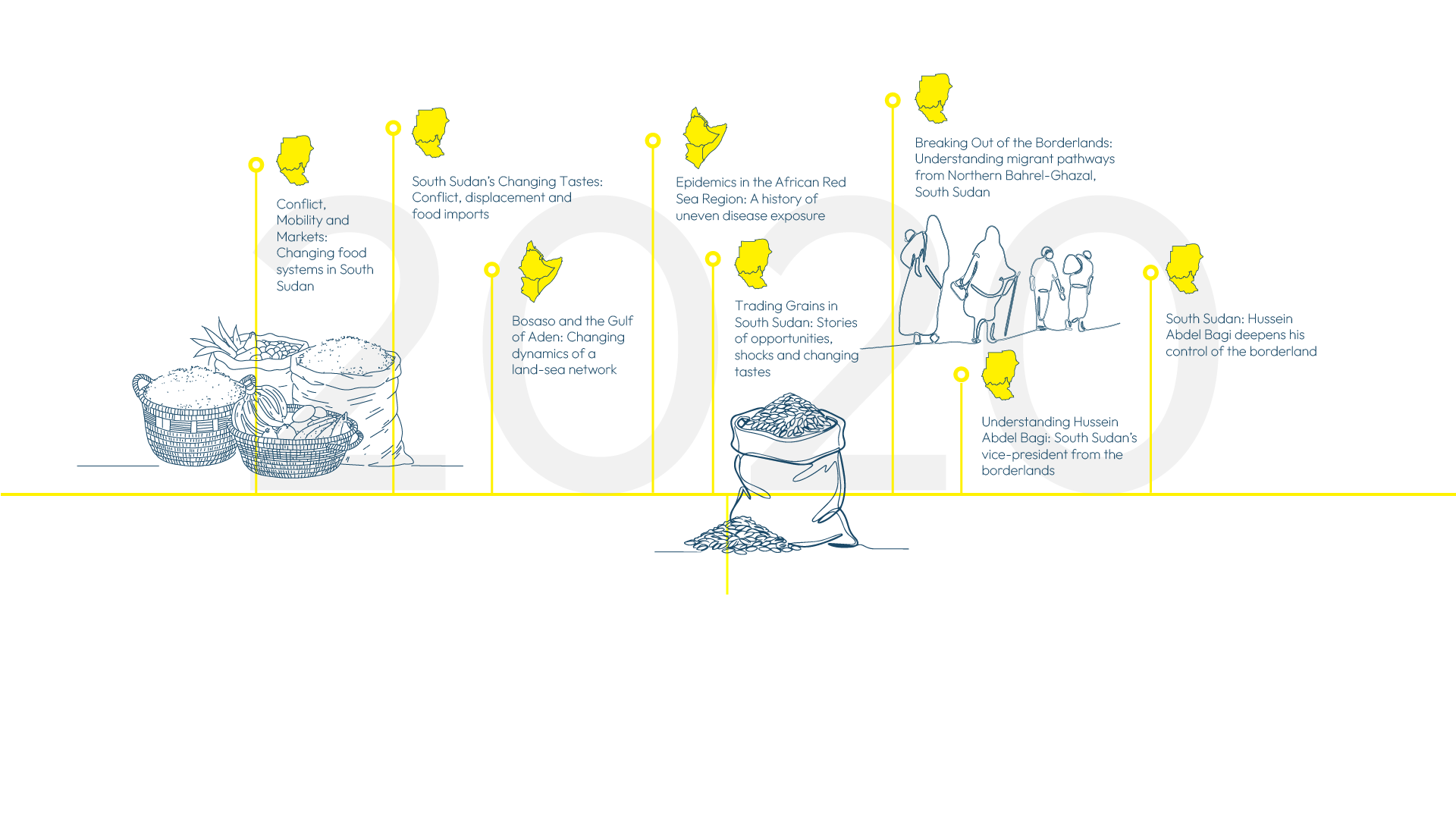
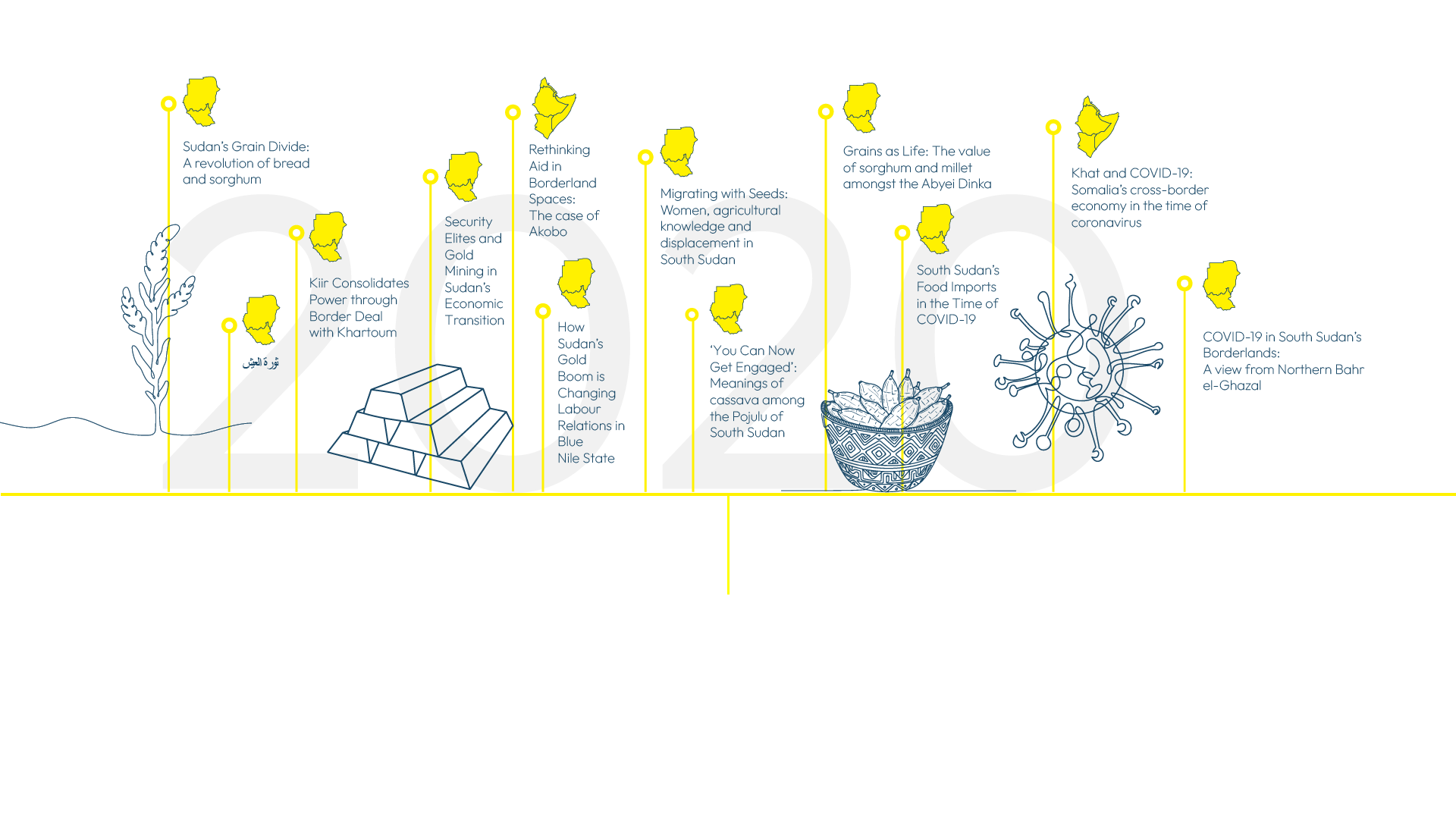
2020: Localised Challenges amid Global Crisis
As the countries around the region grappled with COVID-19, boderlands were not spared. In 2020, our research focused on the impact of the COVID-19 pandemic on border economies and food systems in South Sudan and Somalia. We explored how regional instability and crises shaped the resilience of communities, with a focus on migration, gold mining and labor relations.
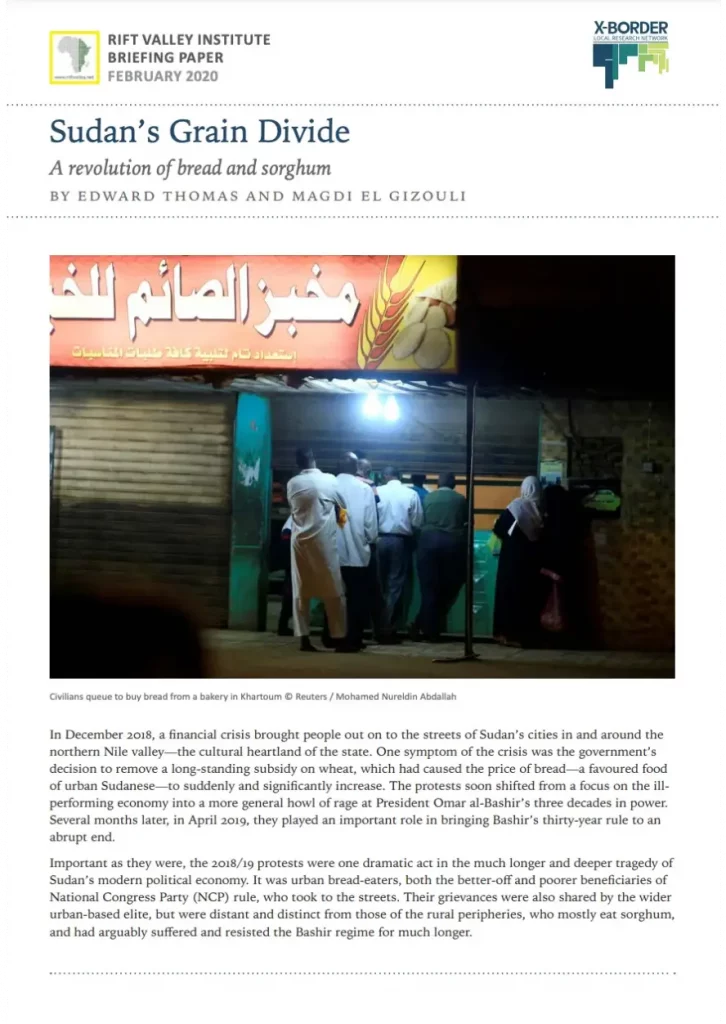
Briefing Paper
2020
Sudan’s Grain Divide
A revolution of bread and sorghum
SUDAN AND SOUTH SUDAN
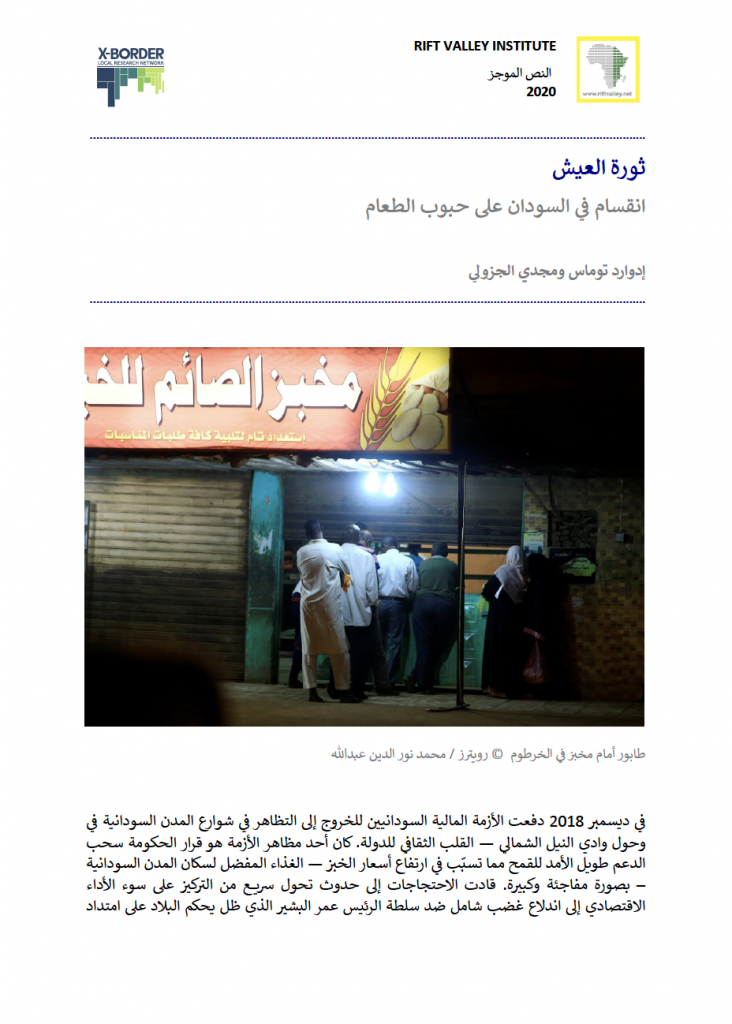
Briefing Paper
2020
ثورة العيش
SUDAN AND SOUTH SUDAN
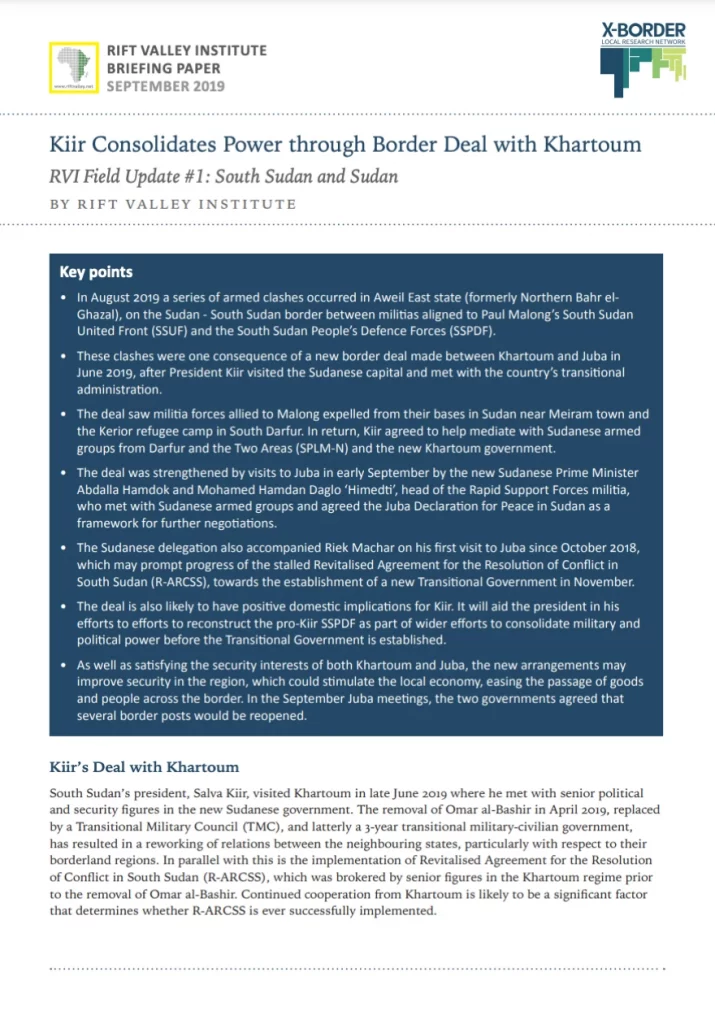
Briefing Paper
2020
Kiir Consolidates Power through Border Deal with Khartoum
SUDAN AND SOUTH SUDAN
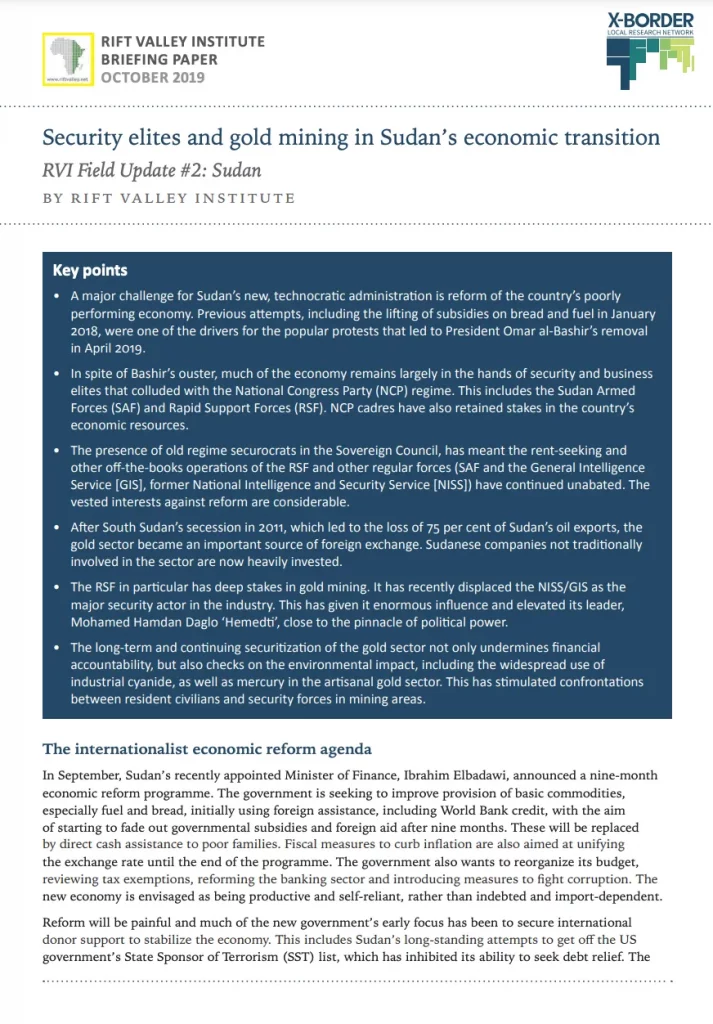
Briefing Paper
2020
Security Elites and Gold Mining in Sudan’s Economic Transition
SUDAN AND SOUTH SUDAN
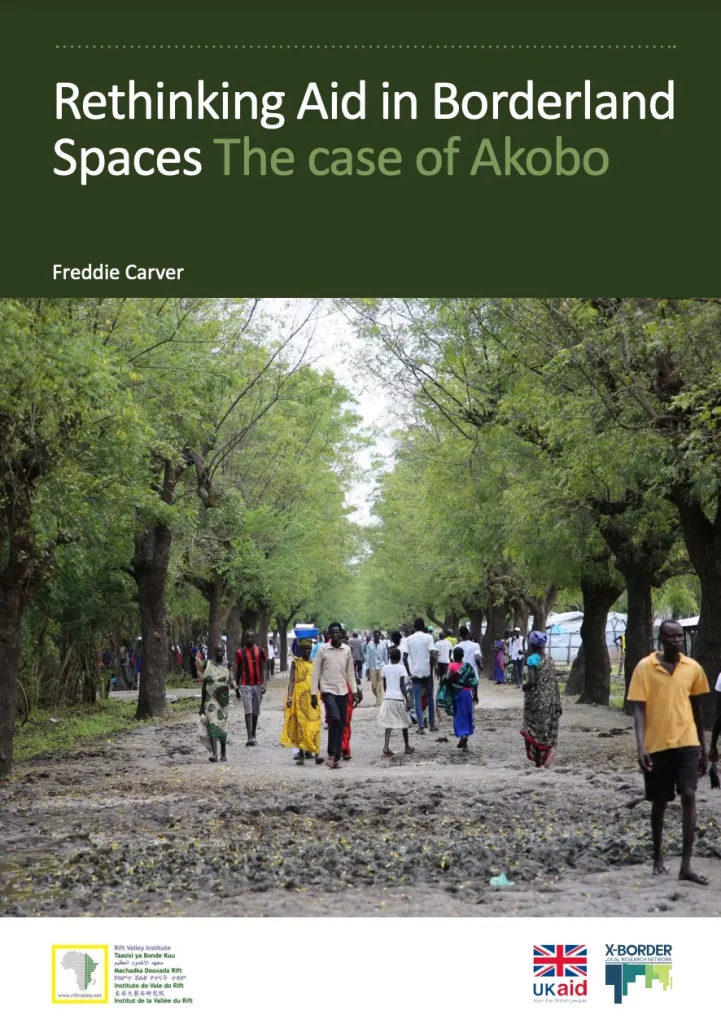
Research Paper
2020
Rethinking Aid in Borderland Spaces
The case of Aboko
SUDAN AND SOUTH SUDAN
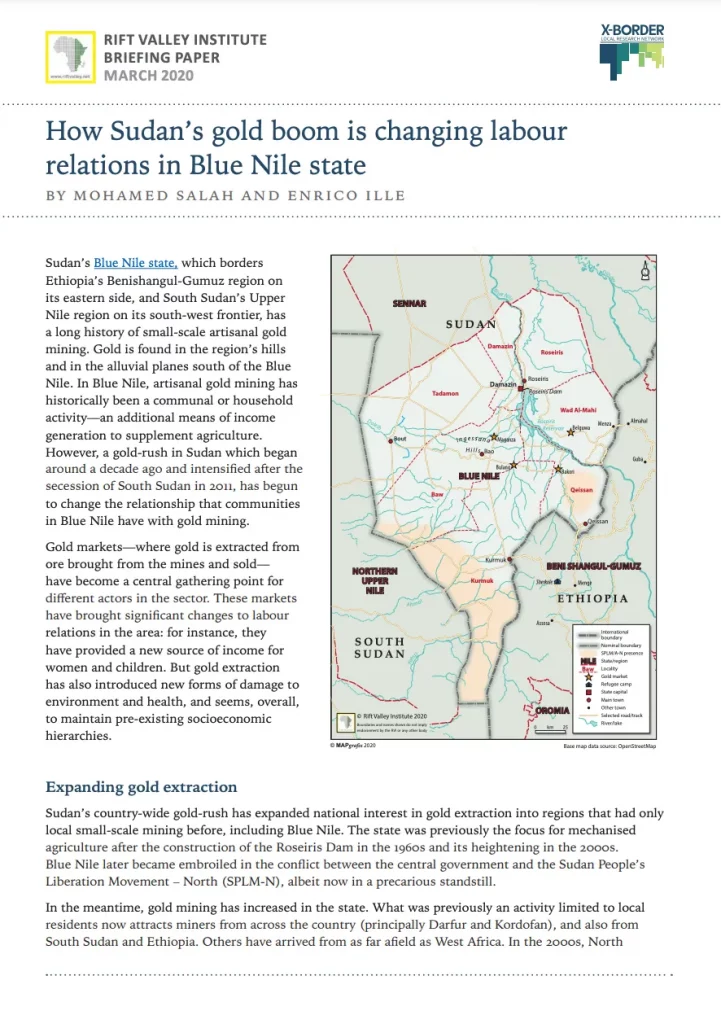
Briefing Paper
2020
How Sudan’s Gold Boom is Changing Labour Relations in Blue Nile State
SUDAN AND SOUTH SUDAN
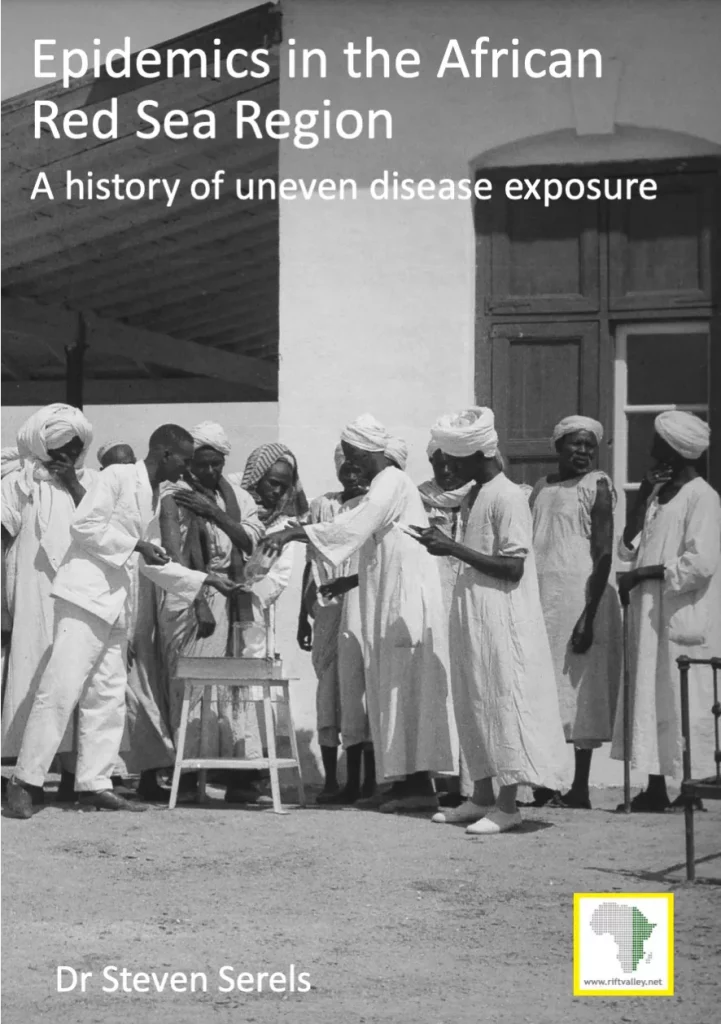
Research Paper
2020
Epidemics in the African Red Sea Region
A history of uneven disease exposure
HORN OF AFRICA
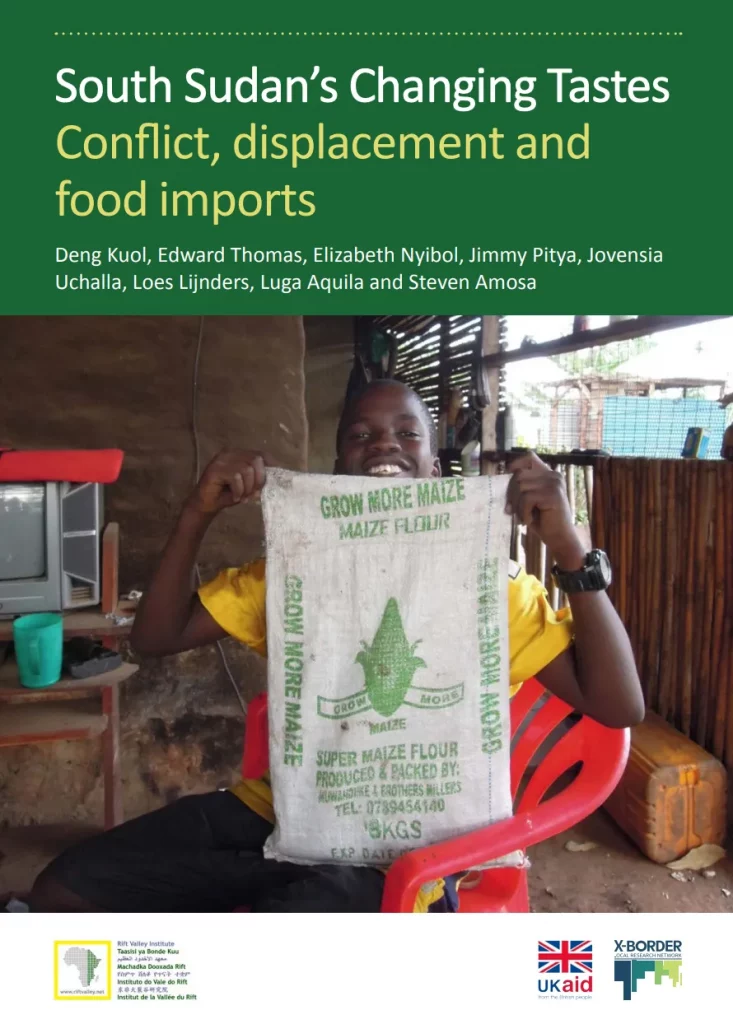
Research Paper
2020
South Sudan’s Changing Tastes
Conflict, displacement and food imports
SUDAN AND SOUTH SUDAN
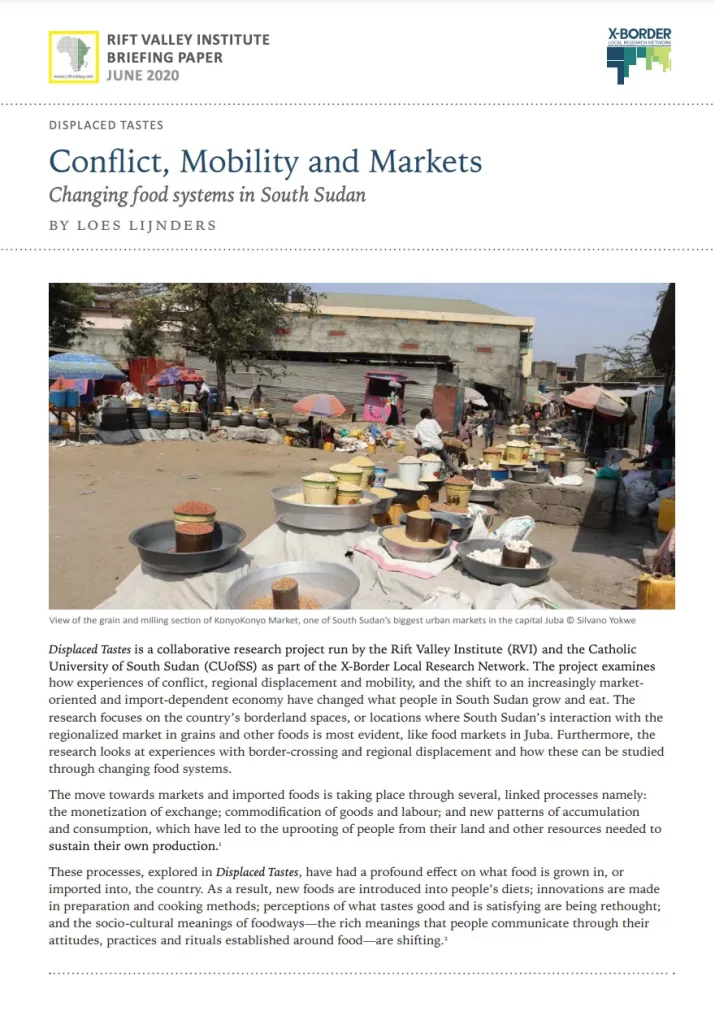
Briefing Paper
2020
Conflict, Mobility and Markets
Changing food systems in South Sudan
SUDAN AND SOUTH SUDAN
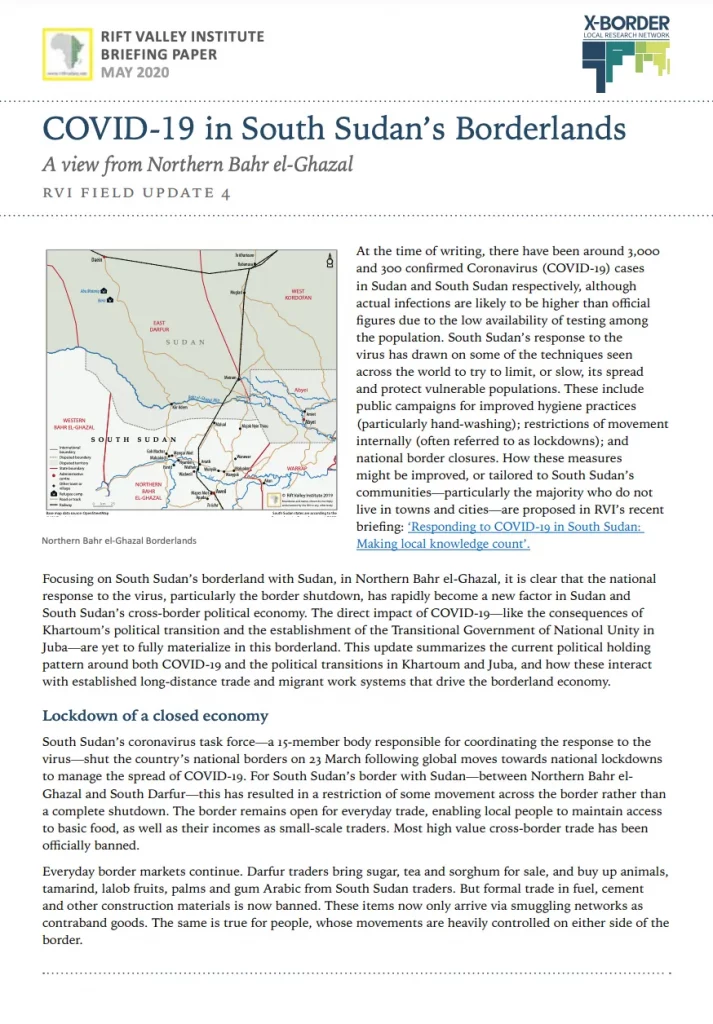
Briefing Paper
2020
COVID-19 in South Sudan’s Borderlands
A view from Northern Bahr el-Ghazal
SUDAN AND SOUTH SUDAN
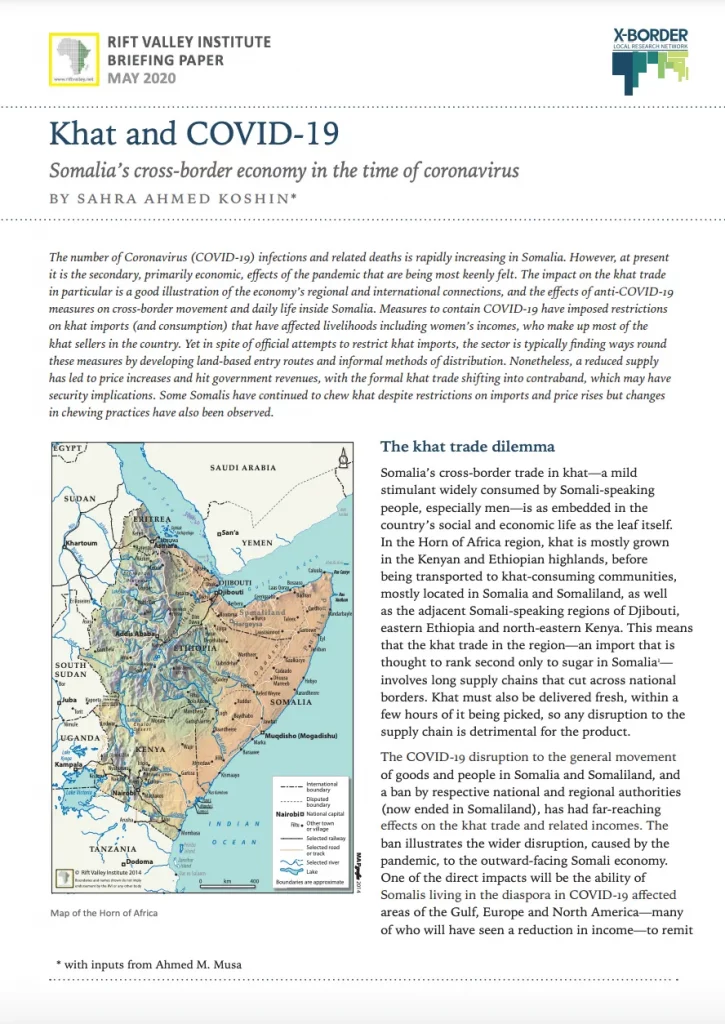
Briefing Paper
2020
Khat and COVID-19
Somalia’s cross-border economy in the time of coronavirus
HORN OF AFRICA
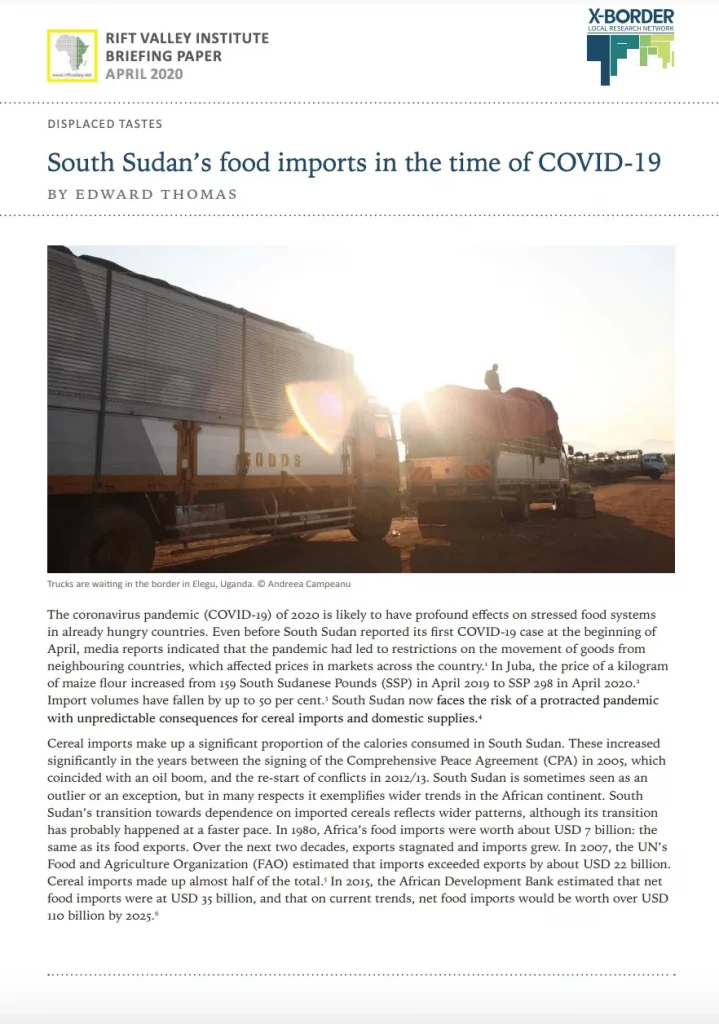
Briefing Paper
2020
South Sudan’s Food Imports in the Time of COVID-19
SUDAN AND SOUTH SUDAN
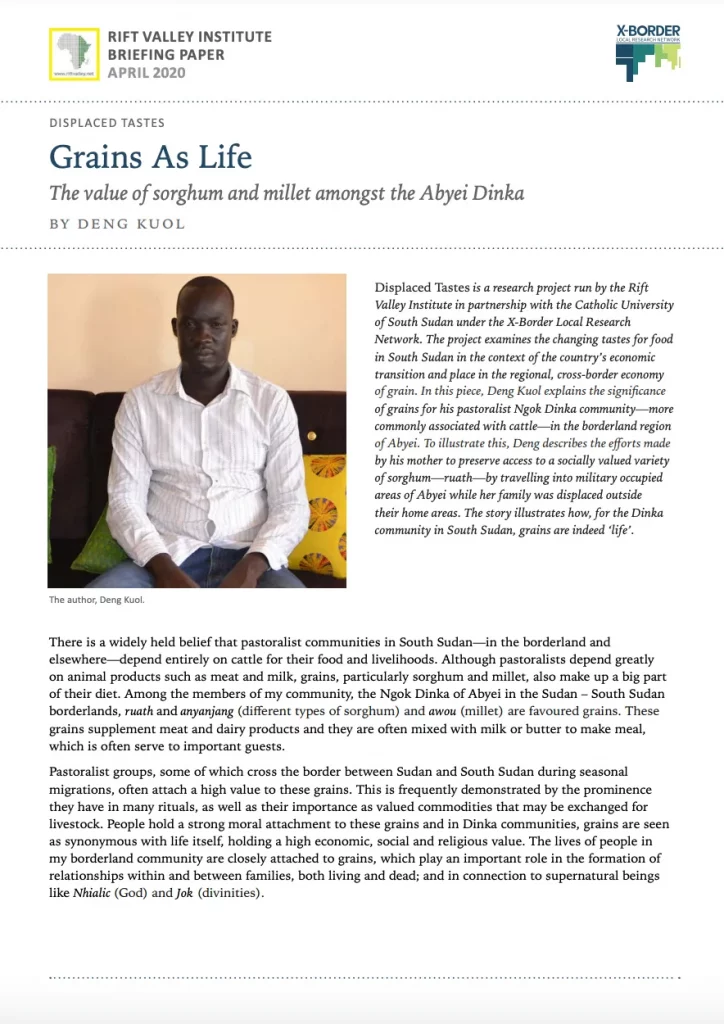
Briefing Paper
2020
Grains as Life
The value of sorghum and millet amongst the Abyei Dinka
SUDAN AND SOUTH SUDAN
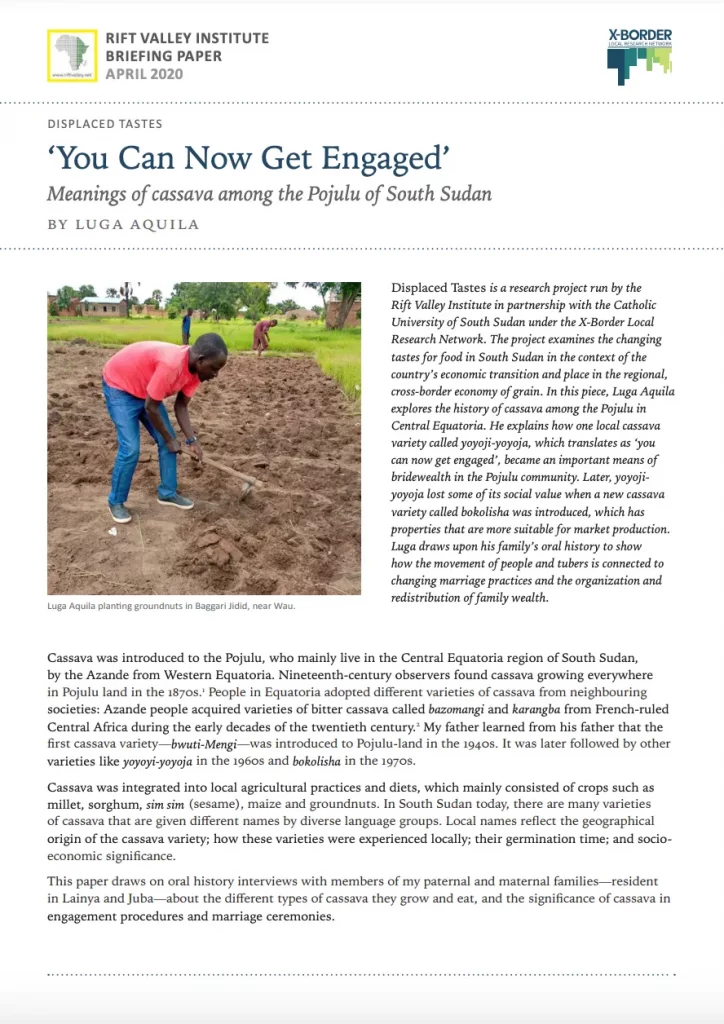
Briefing Paper
2020
‘You Can Now Get Engaged’
Meanings of cassava among the Pojulu of South Sudan
SUDAN AND SOUTH SUDAN
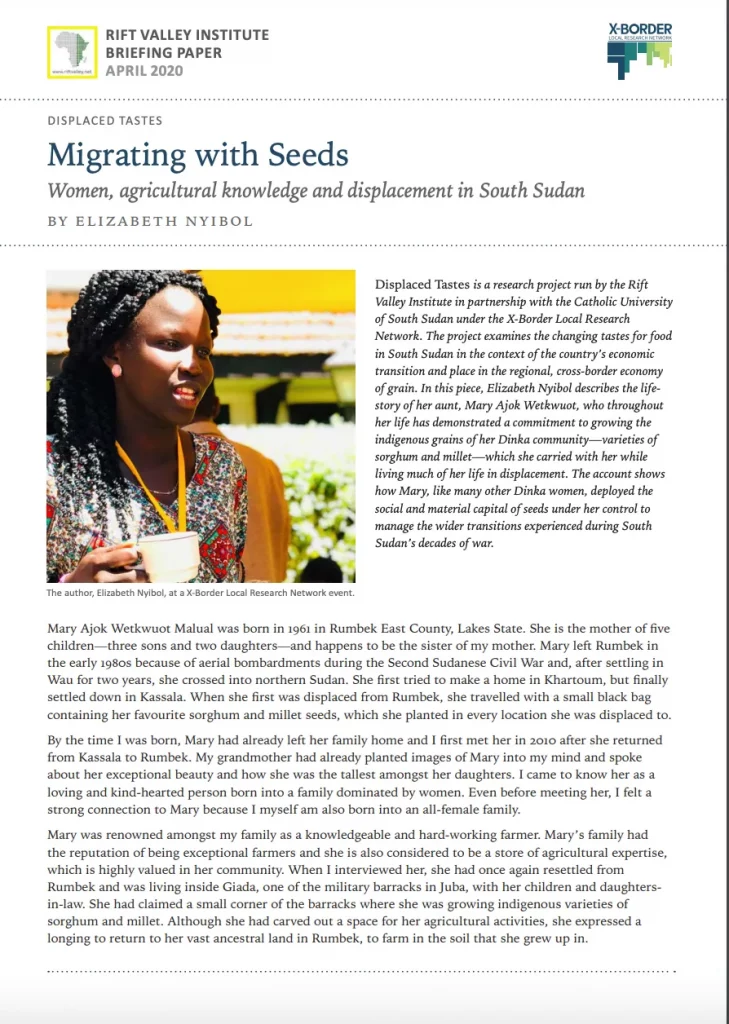
Briefing Paper
2020
Migrating with Seeds
Women, agricultural knowledge and displacement in South Sudan
SUDAN AND SOUTH SUDAN
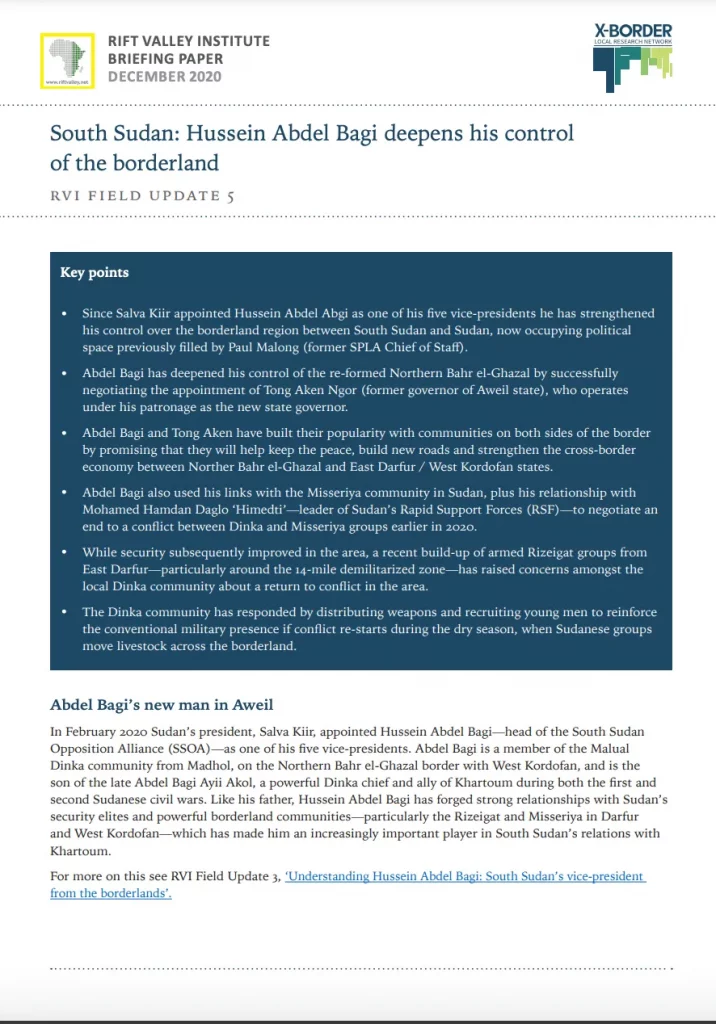
Briefing Paper
2020
South Sudan
Hussein Abdel Bagi deepens his control of the borderland
SUDAN AND SOUTH SUDAN
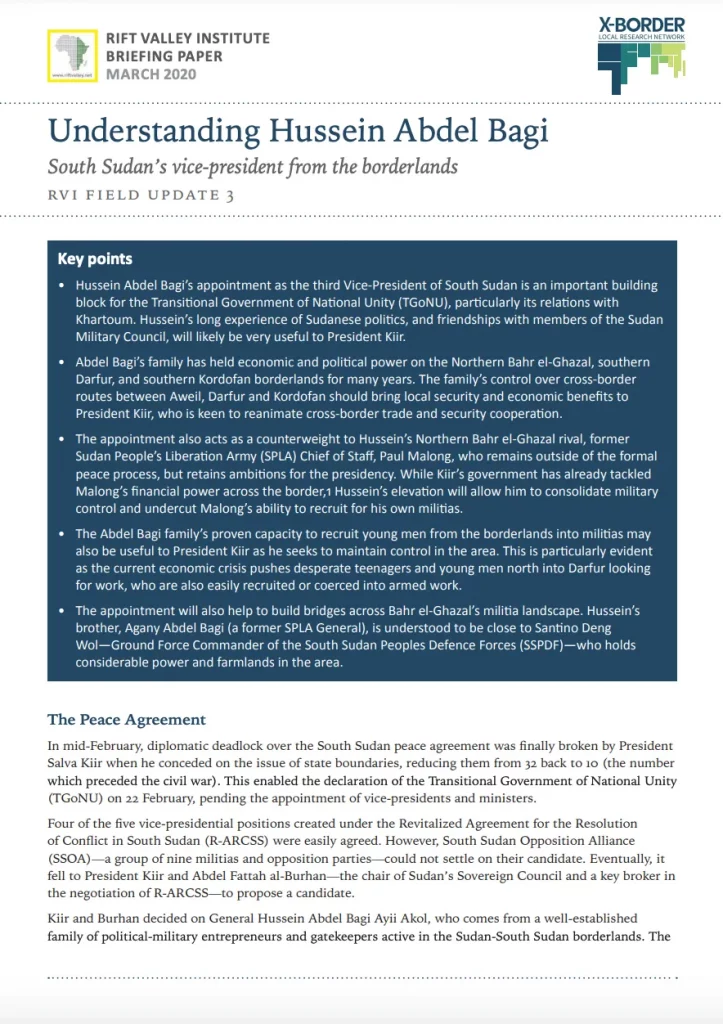
Briefing Paper
2020
Understanding Hussein Abdel Bagi
South Sudan’s vice-president from the borderlands
SUDAN AND SOUTH SUDAN
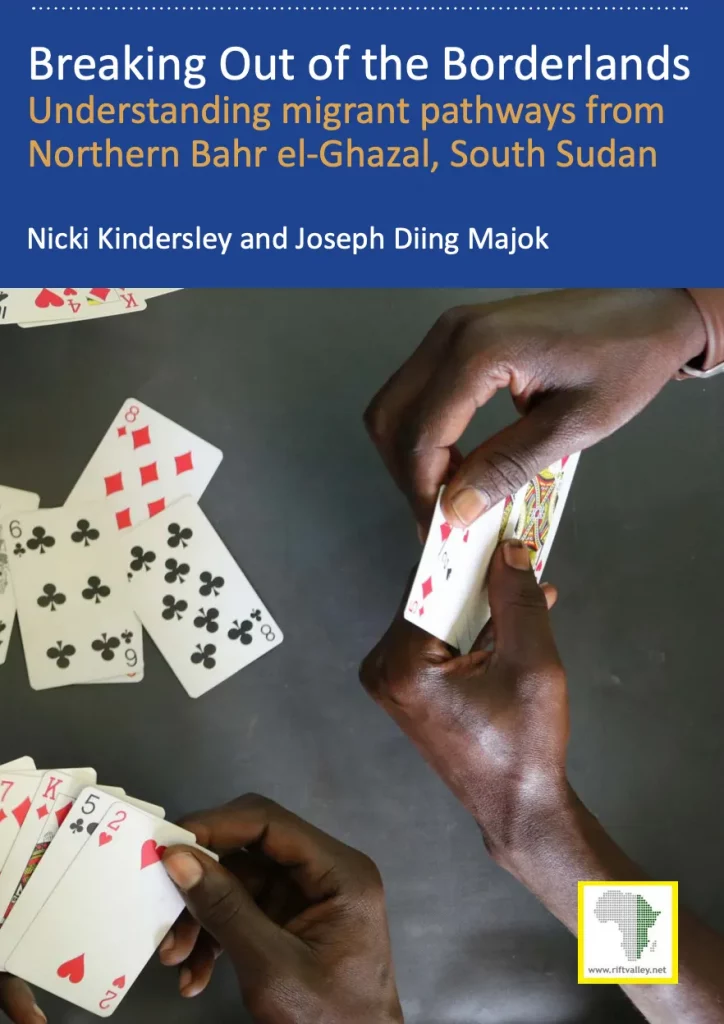
Research Paper
2020
Breaking Out of the Borderlands
Understanding migrant pathways from Northern Bahr el-Ghazal, South Sudan
SUDAN AND SOUTH SUDAN
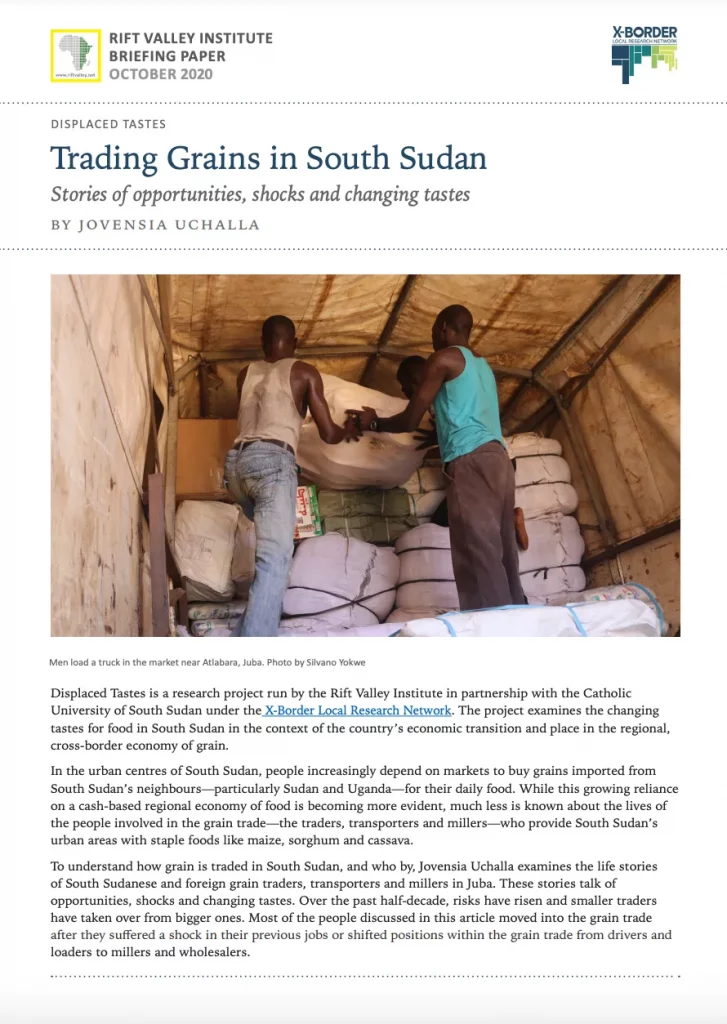
Briefing Paper
2020
Trading Grains in South Sudan
Stories of opportunities, shocks and changing tastes
SUDAN AND SOUTH SUDAN
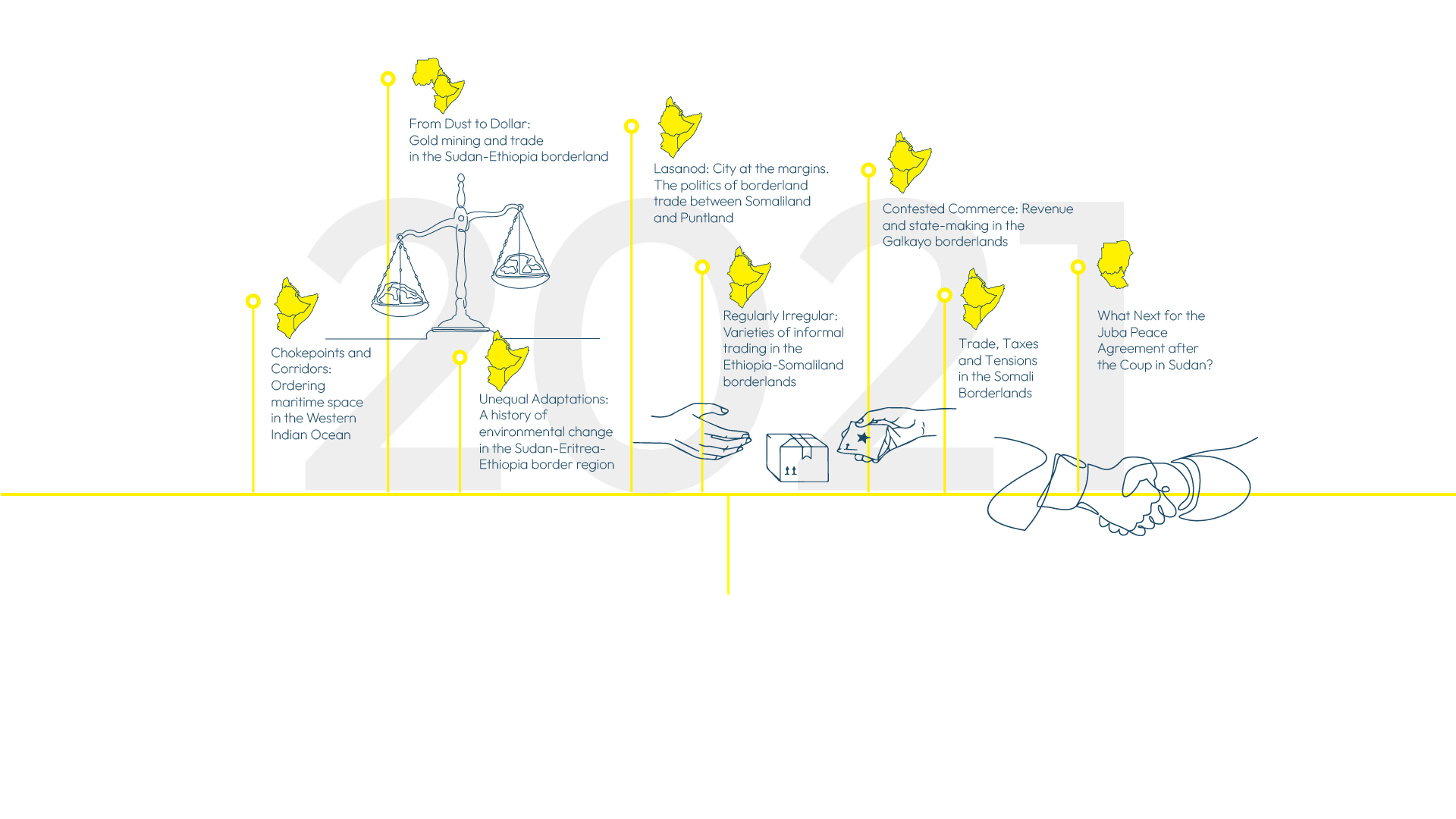
2021: Borders, Mobity and Trade
In 2021, RVI research focused on understanding the structures and dynamics of informal trade networks, state-making and environmental change across borderlands. From gold mining in Sudan to informal trading between Ethiopia and Somaliland, our research highlighted the complexities of economic governance in these regions.
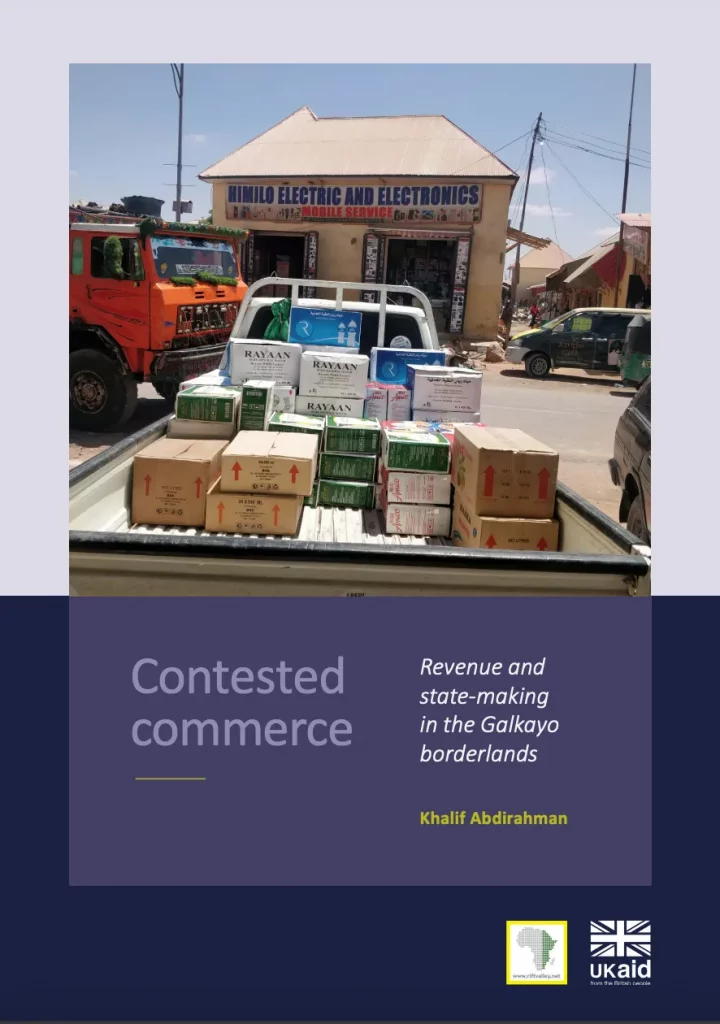
Research Paper
2021
Contested Commerce
Revenue and state-making in the Galkayo borderlands
HORN OF AFRICA
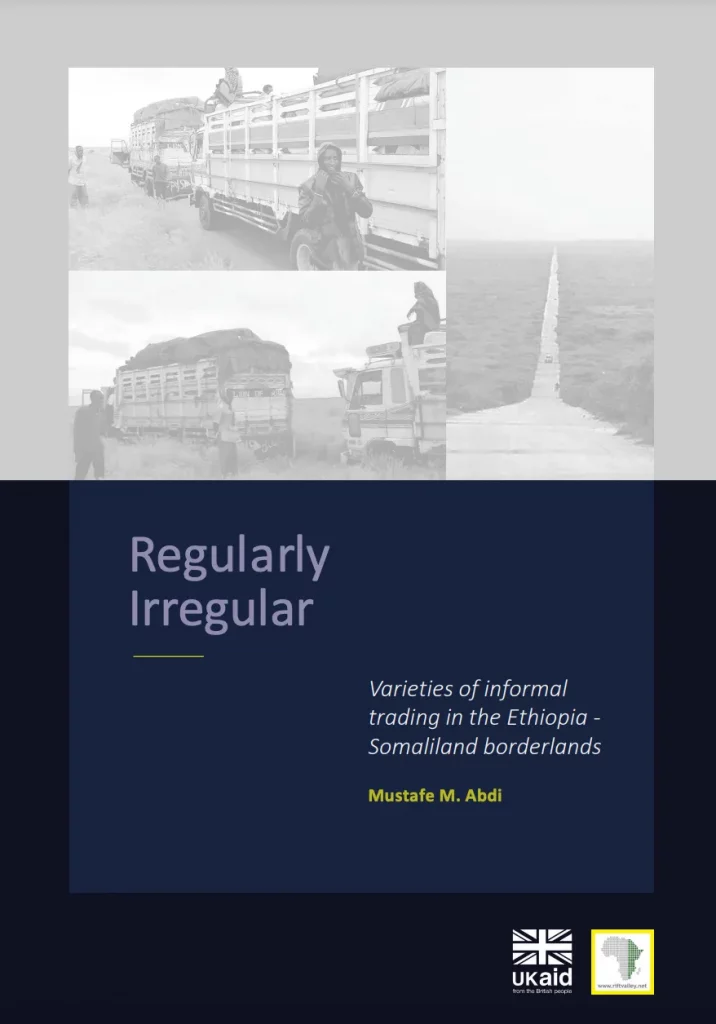
Research Paper
2021
Regularly Irregular
Varieties of informal trading in the Ethiopia-Somaliland borderlands
HORN OF AFRICA
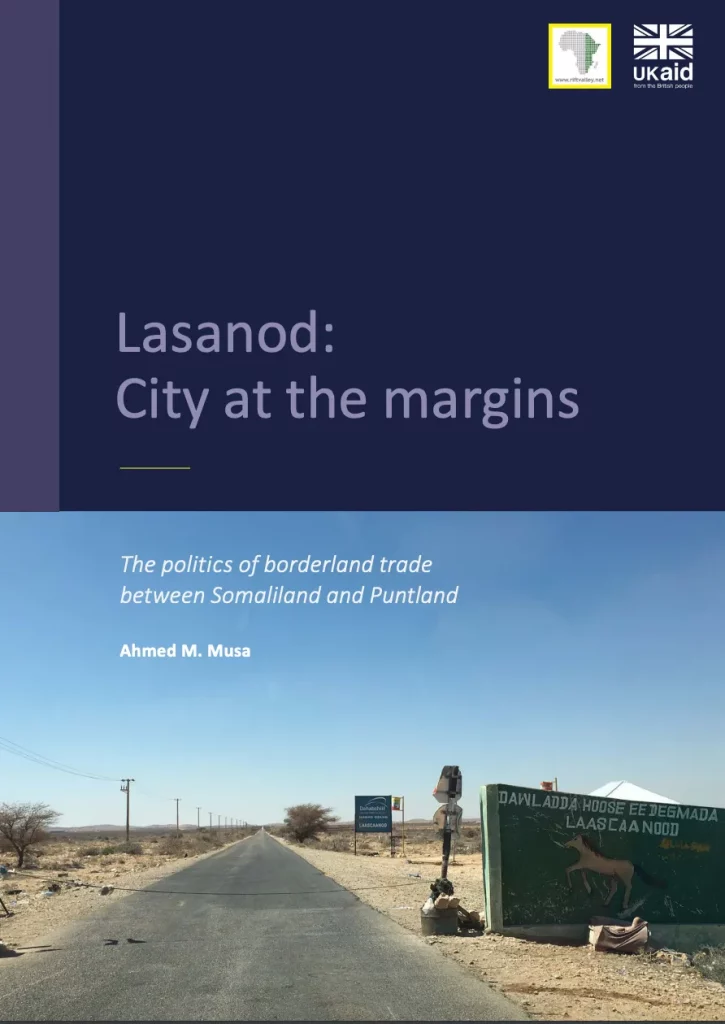
Research Paper
2021
Lasanod: City at the Margins
The politics of borderland trade between Somaliland and Puntland
HORN OF AFRICA
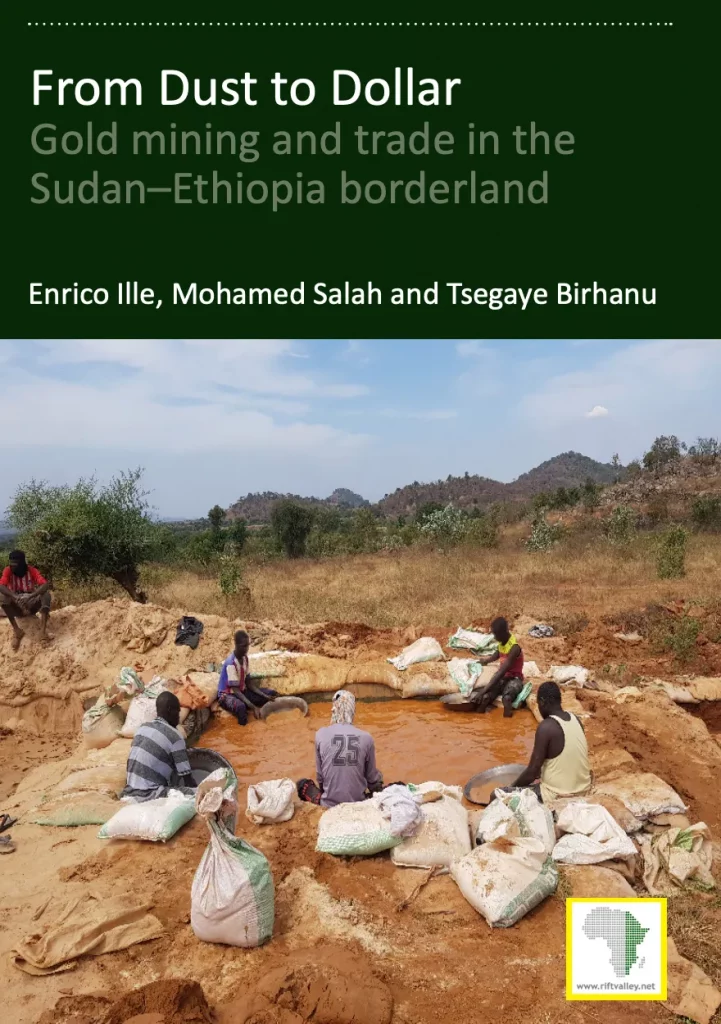
Research Paper
2021
From Dust to Dollar
Gold mining and trade in the Sudan-Ethiopia borderland
HORN OF AFRICA
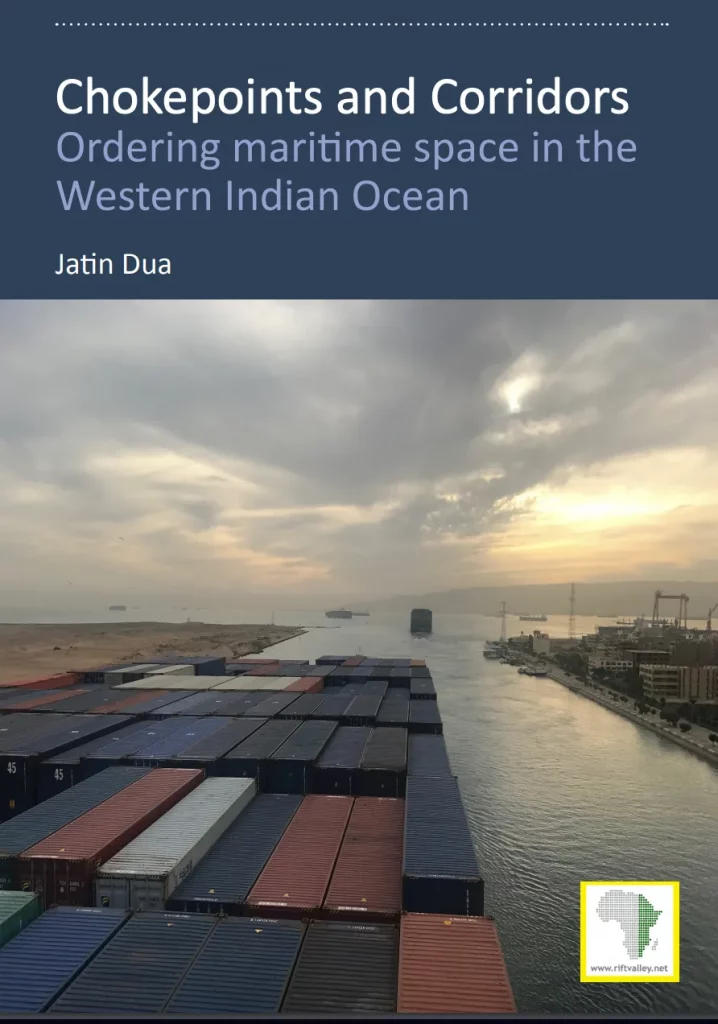
Research Paper
2021
Chokepoints and Corridors
Ordering maritime space in the Western Indian Ocean
HORN OF AFRICA
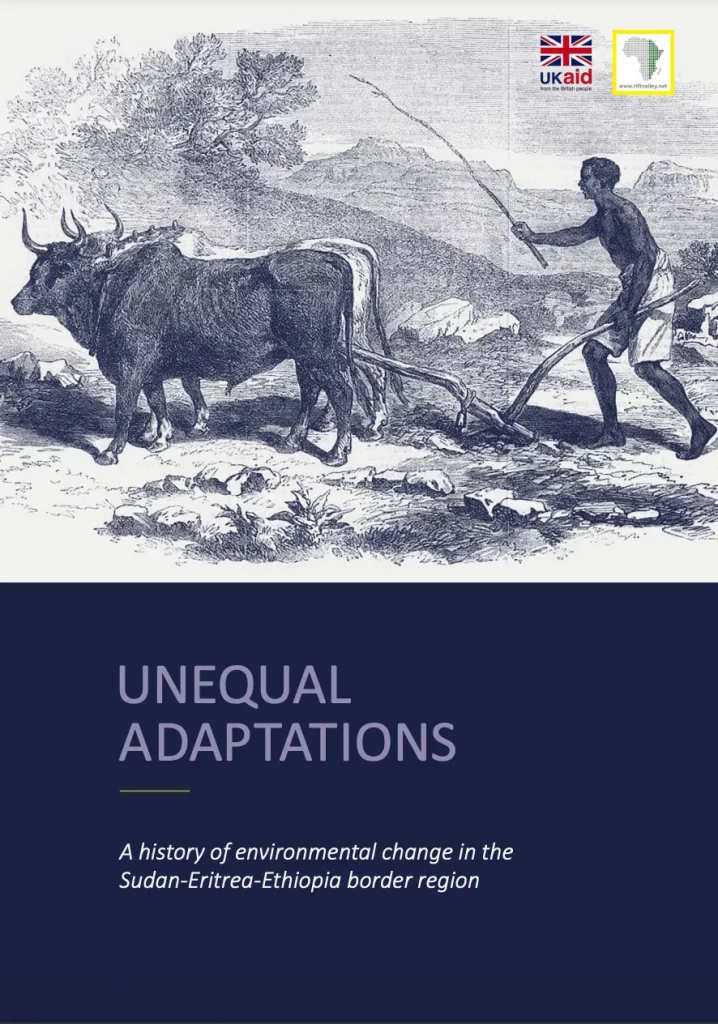
Research Paper
2021
Unequal Adaptations
A history of environmental change in the Sudan-Eritrea-Ethiopia border region
HORN OF AFRICA
The Sudan-Eritrea-Ethiopia border region has long been a place of deep interconnection. Historically, collaboration across ethno-linguistic and religious divides allowed communities to develop life-sustaining complementary strategies for utilizing the region’s natural resources.
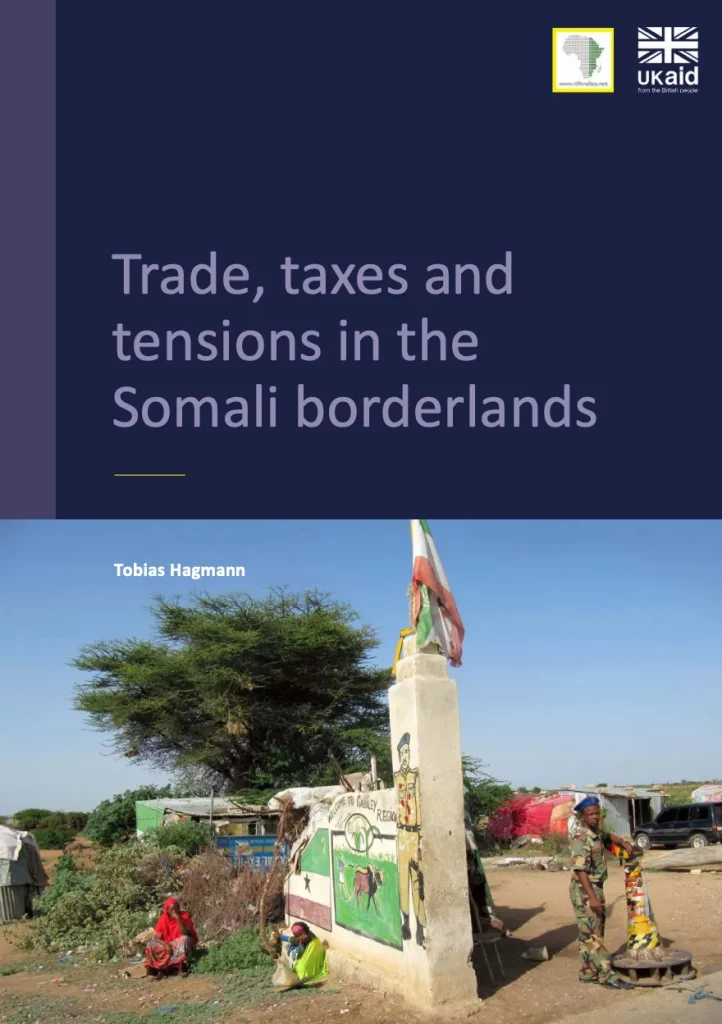
Research Paper
2021
Trade, Taxes and Tensions in the Somali Borderlands
HORN OF AFRICA
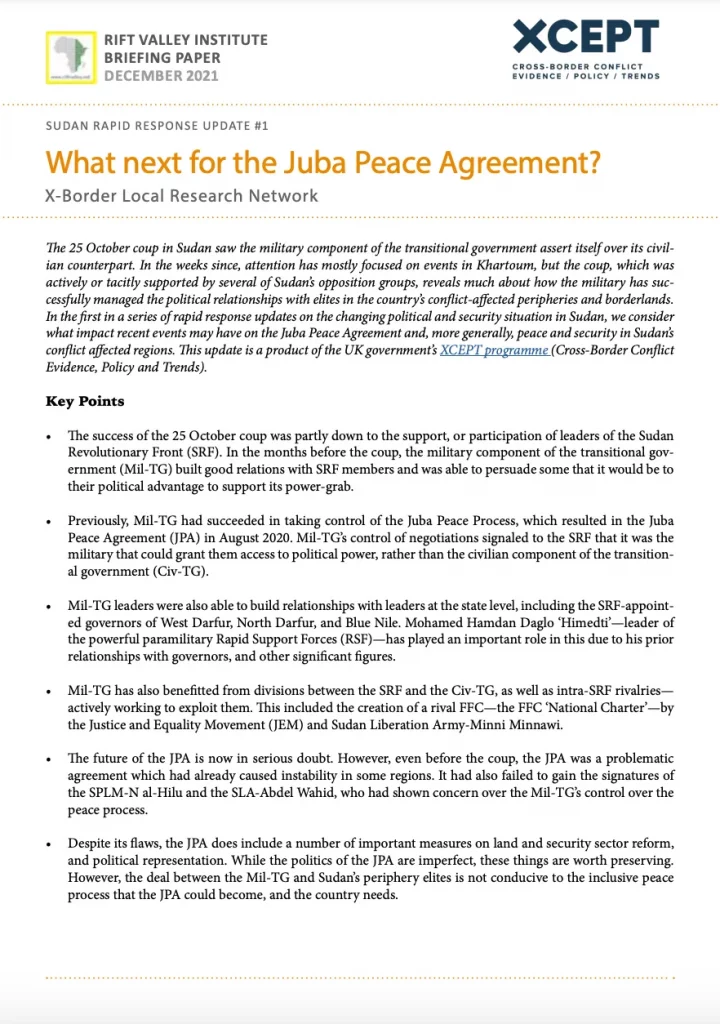
Briefing Paper
2021
What Next for the Juba Peace Agreement after the Coup in Sudan?
SUDAN AND SOUTH SUDAN
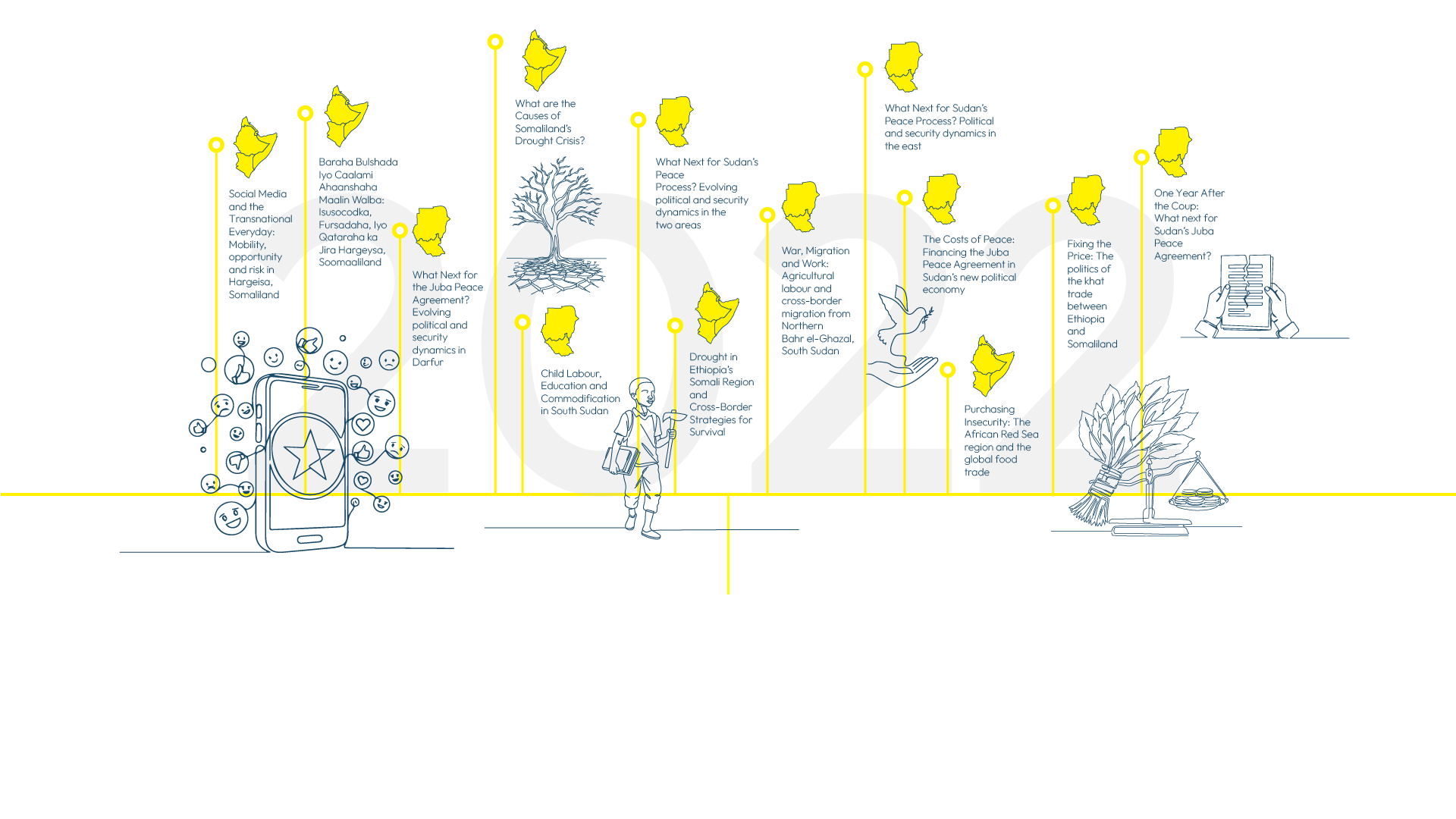
2022: Conflict and Commodification
In 2022, our focus was on the politics of trade, labour and conflict in border regions. We explored how commodities such as khat shaped the politics of Somaliland’s trade and delved into peace processes in Sudan and the role of child labour in South Sudan’s border areas.
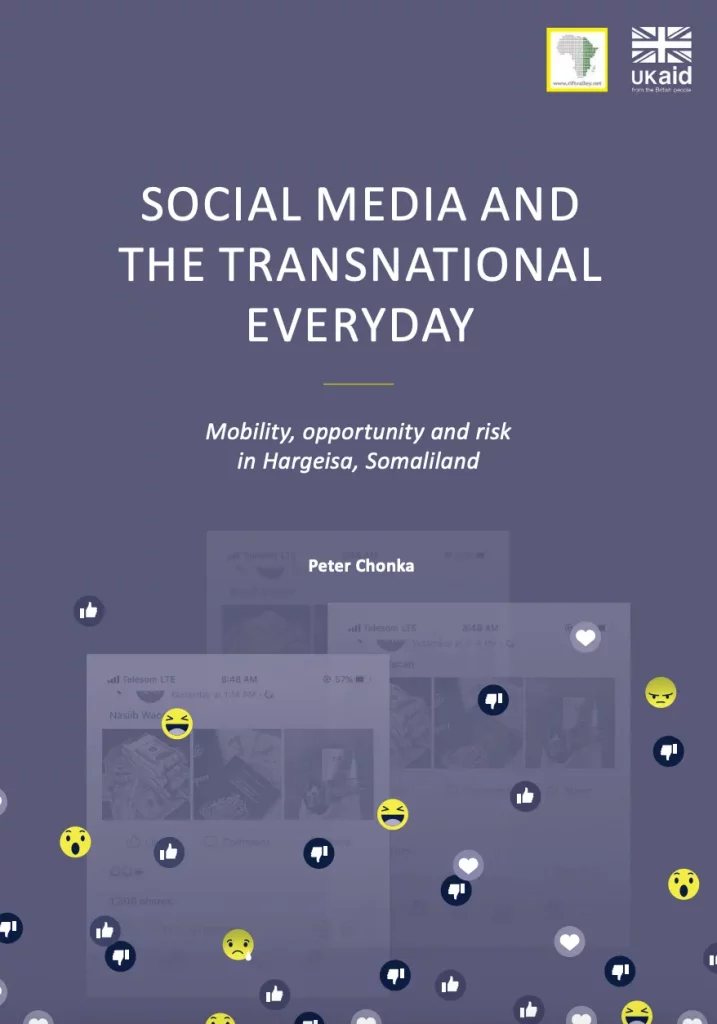
Research Paper
2022
Social Media and the Transnational Everyday
Mobility, opportunity and risk in Hargeisa, Somaliland
HORN OF AFRICA

Research Paper
2022
Baraha Bulshada Iyo Caalami Ahaanshaha Maalin Walba
Isusocodka, fursadaha, iyo qataraha ka jira Hargeysa, Soomaaliland
HORN OF AFRICA
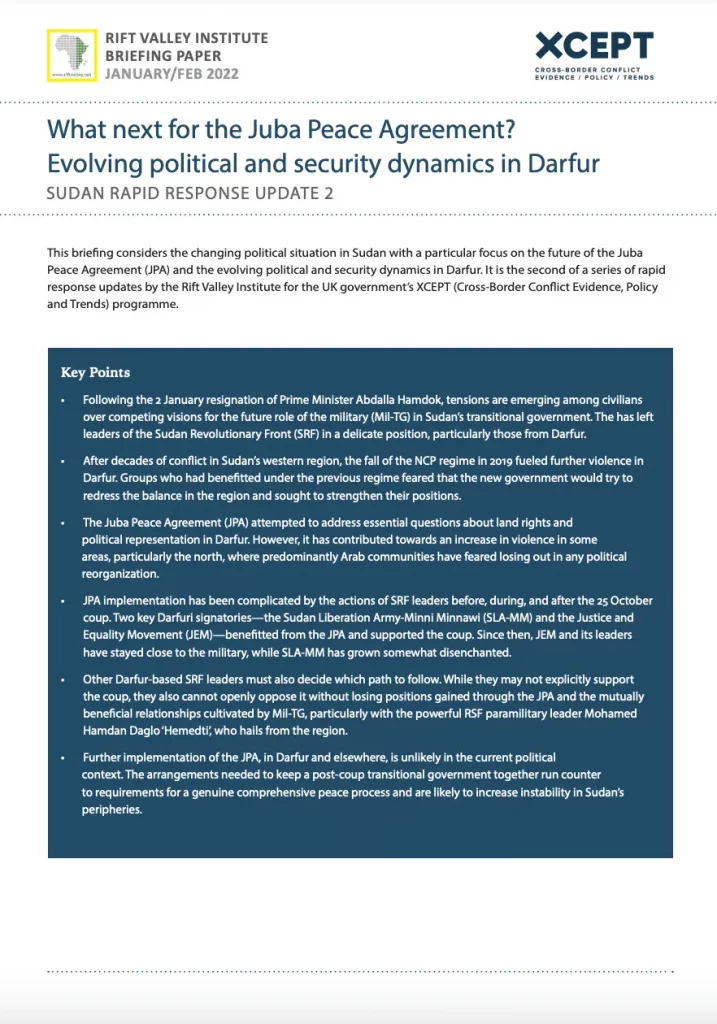
Briefing Paper
2022
What Next for the Juba Peace Agreement?
Evolving political and security dynamics in Darfur
SUDAN AND SOUTH SUDAN
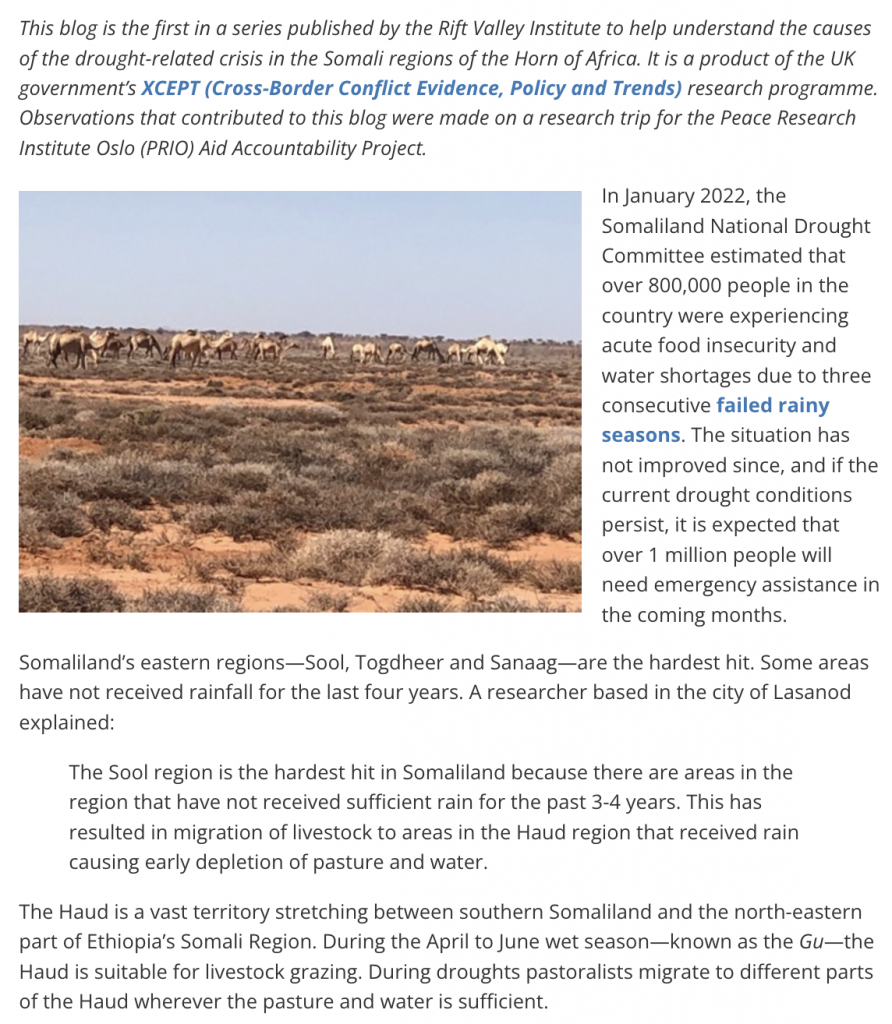
Blog
2022
What are the Causes of Somaliland’s Drought Crisis?
HORN OF AFRICA
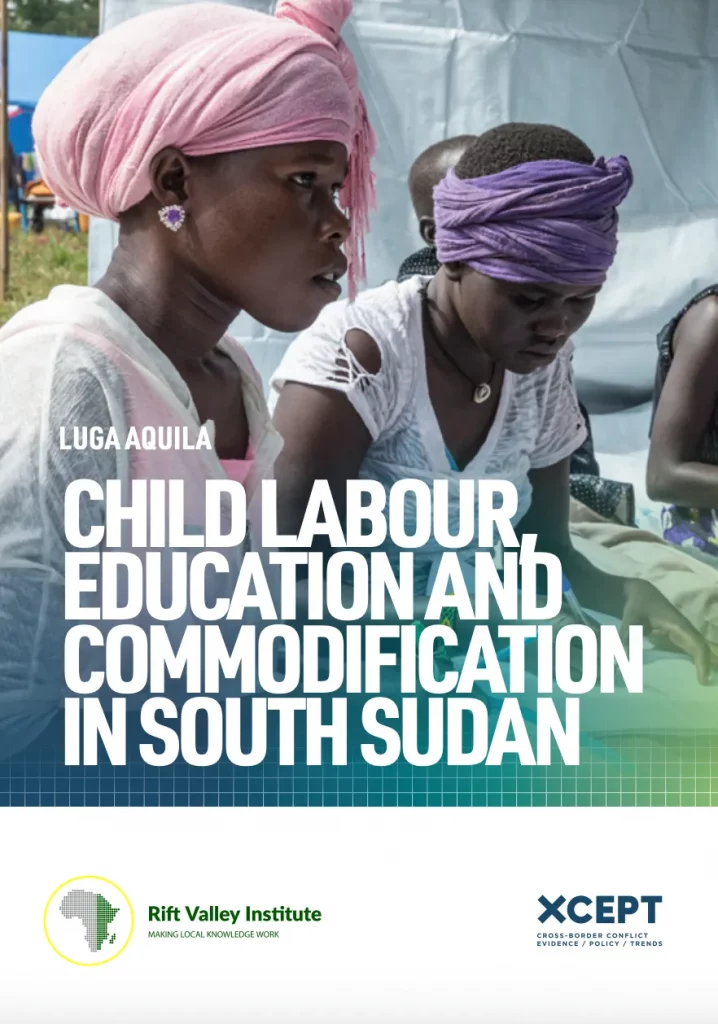
Research Paper
2022
Child Labour, Education and Commodification in South Sudan
SUDAN AND SOUTH SUDAN
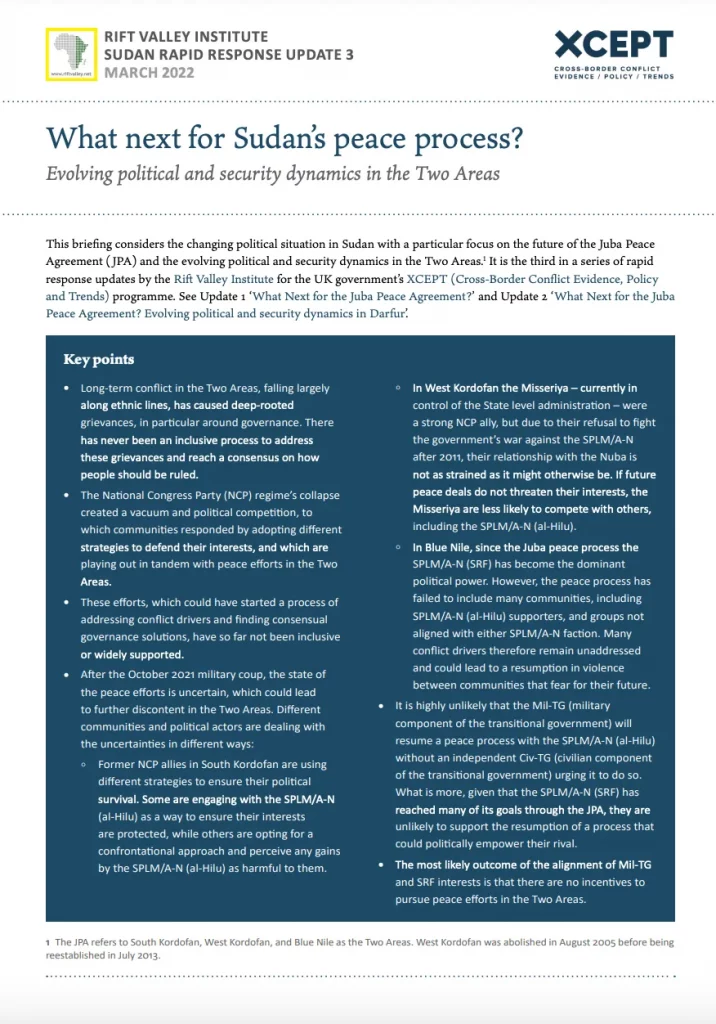
Briefing Paper
2022
What Next for Sudan’s Peace Process?
Evolving political and security dynamics in the Two Areas
HORN OF AFRICA
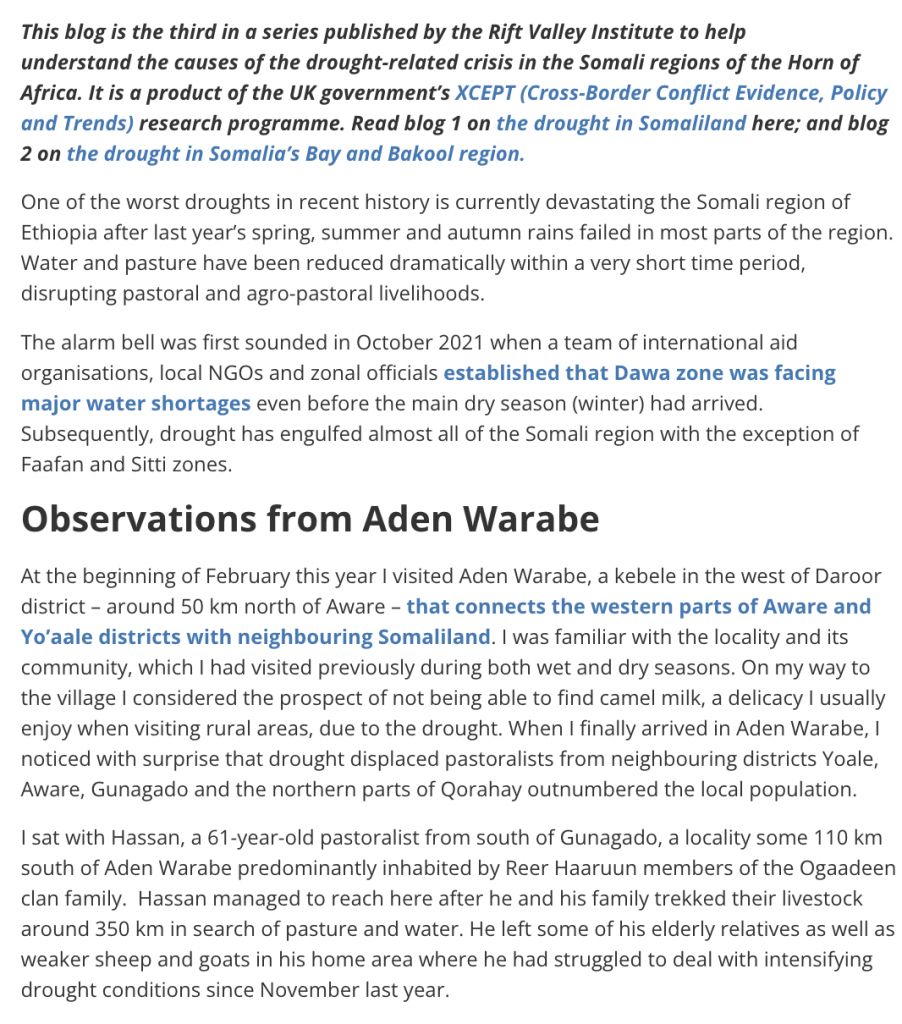
Blog
2022
Drought in Ethiopia's Somali Region and Cross-Border Strategies for Survival
HORN OF AFRICA
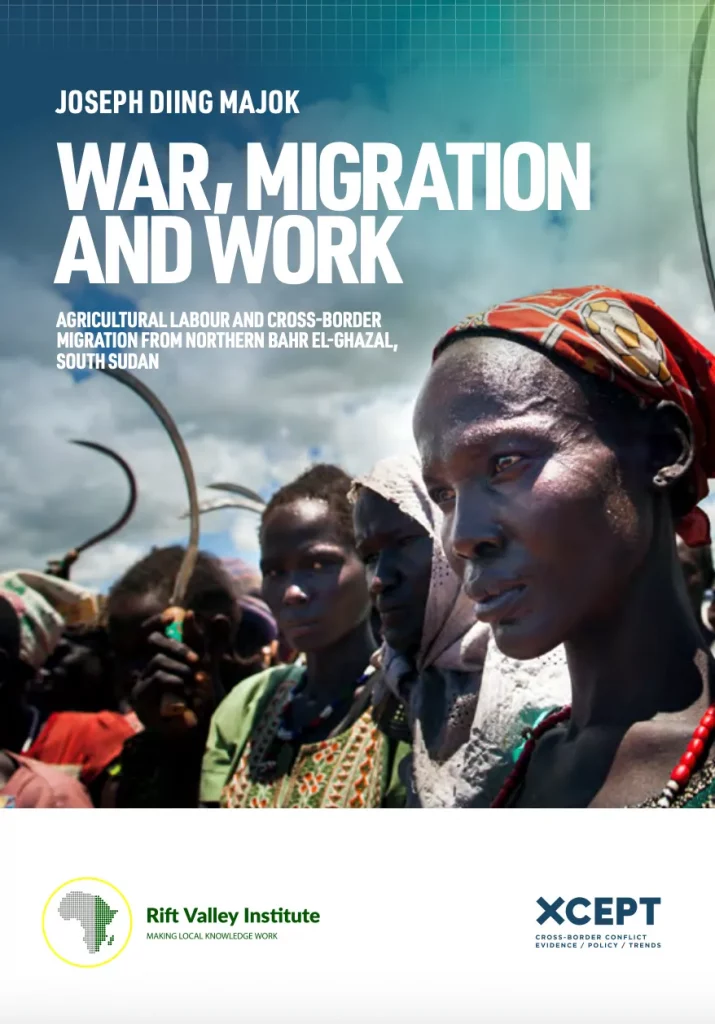
Research Paper
2022
War, Migration and Work
Agricultural labour and cross-border migration from Northern Bahr el-Ghazal, South Sudan
HORN OF AFRICA
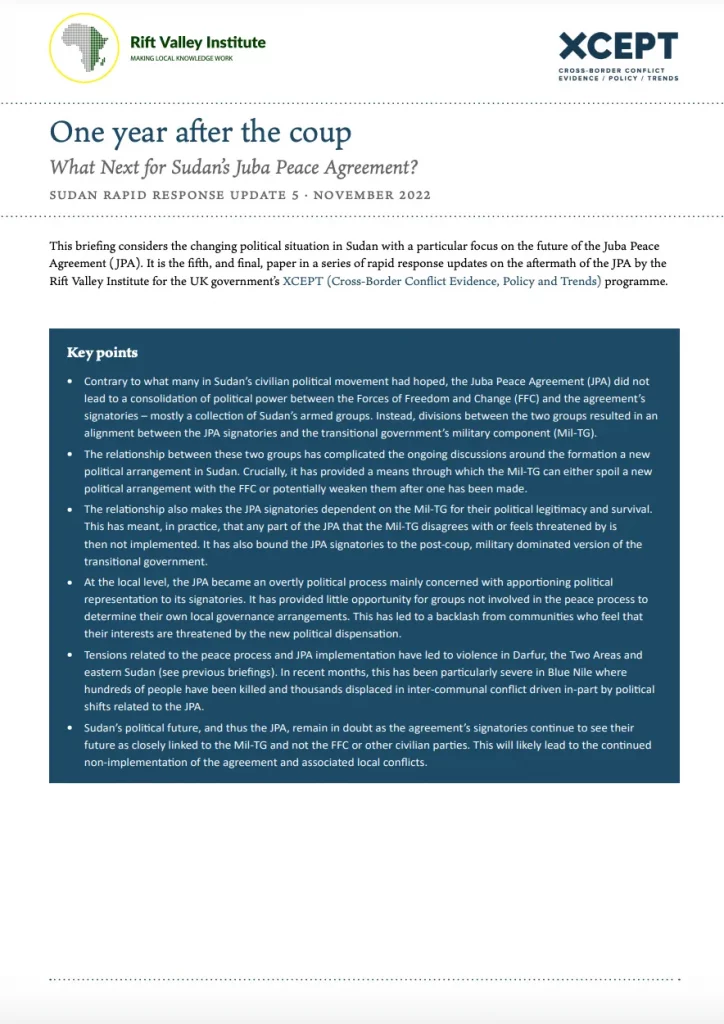
Briefing Paper
2022
One Year after the Coup
What next for Sudan's Juba Peace Agreement?
SUDAN AND SOUTH SUDAN
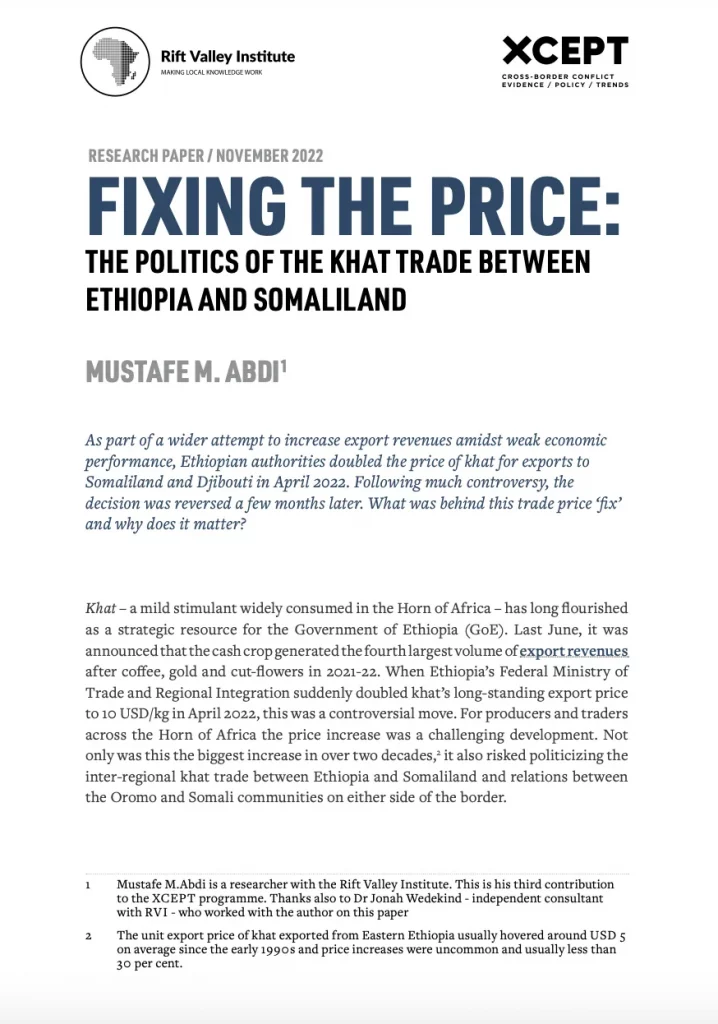
Research Paper
2022
Fixing the Price
The politics of the khat trade between Ethiopia and Somaliland
HORN OF AFRICA
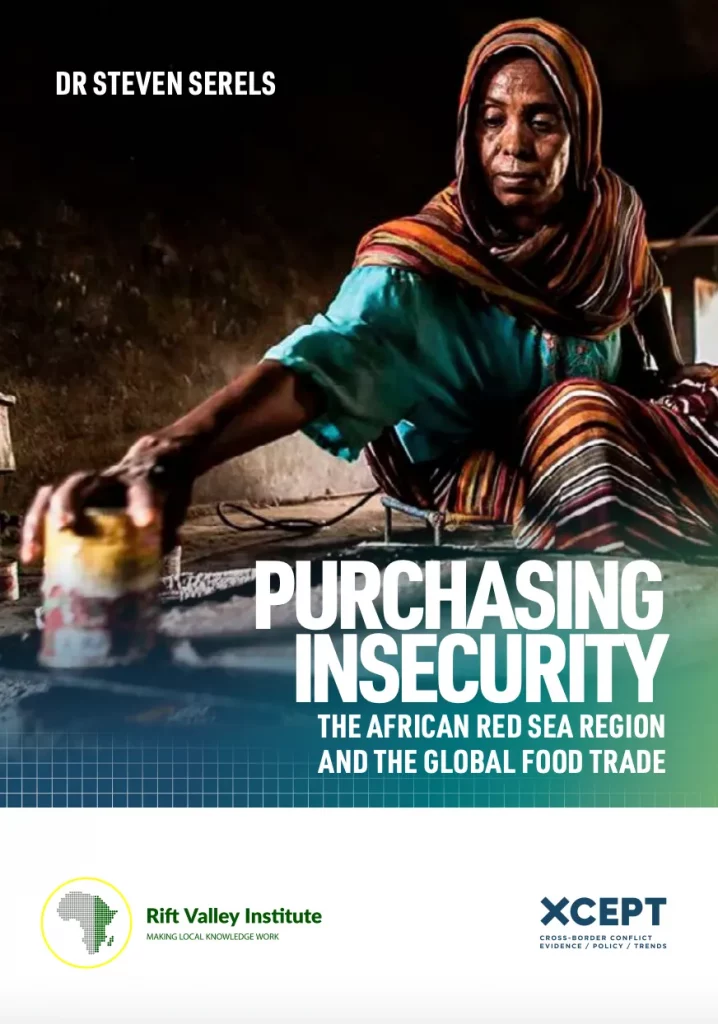
Research Paper
2022
Purchasing Insecurity
The African red sea region and the global food trade
HORN OF AFRICA
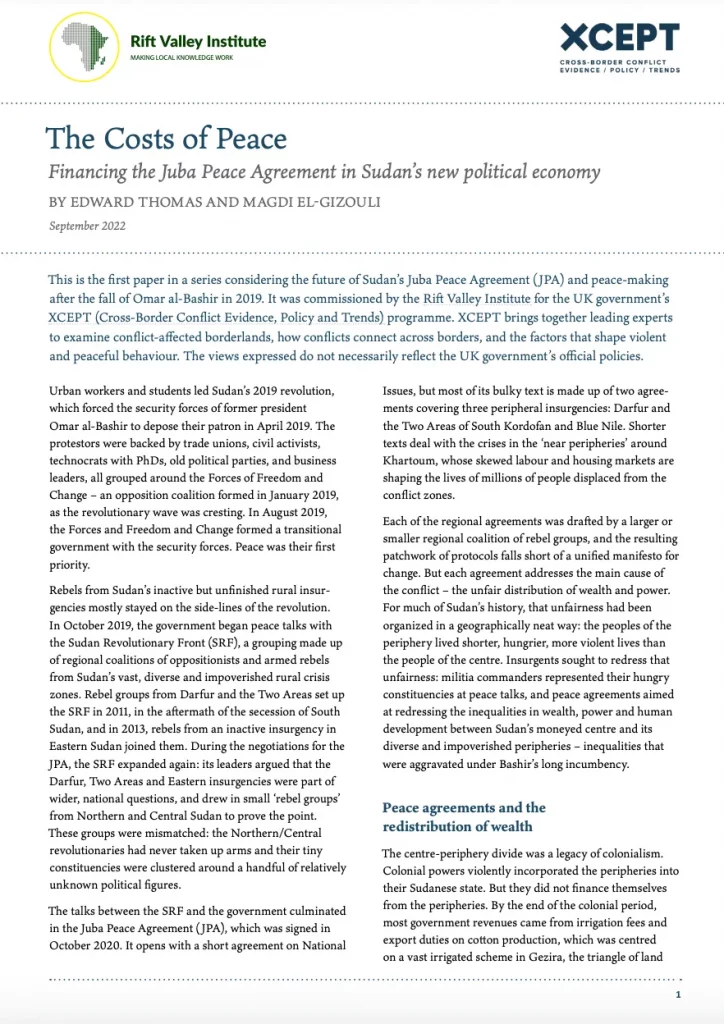
Research Paper
2022
The Costs of Peace
Financing the Juba Peace Agreement in Sudan's new political economy
SUDAN AND SOUTH SUDAN
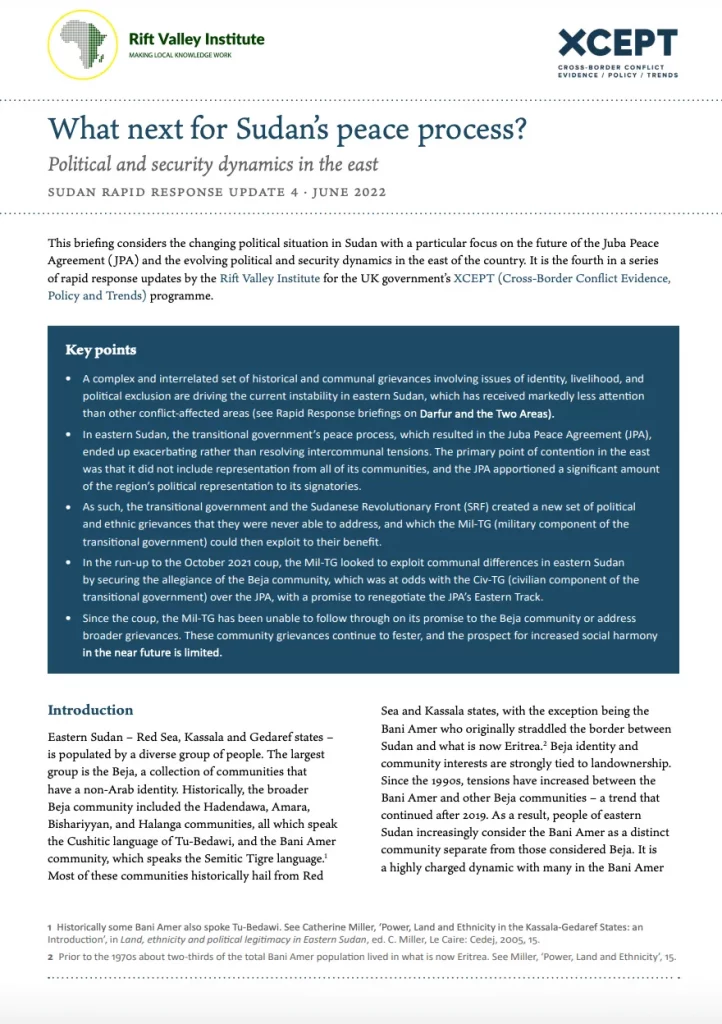
Briefing Paper
2022
What Next for Sudan’s Peace Process?
Political and security dynamics in the east
SUDAN AND SOUTH SUDAN
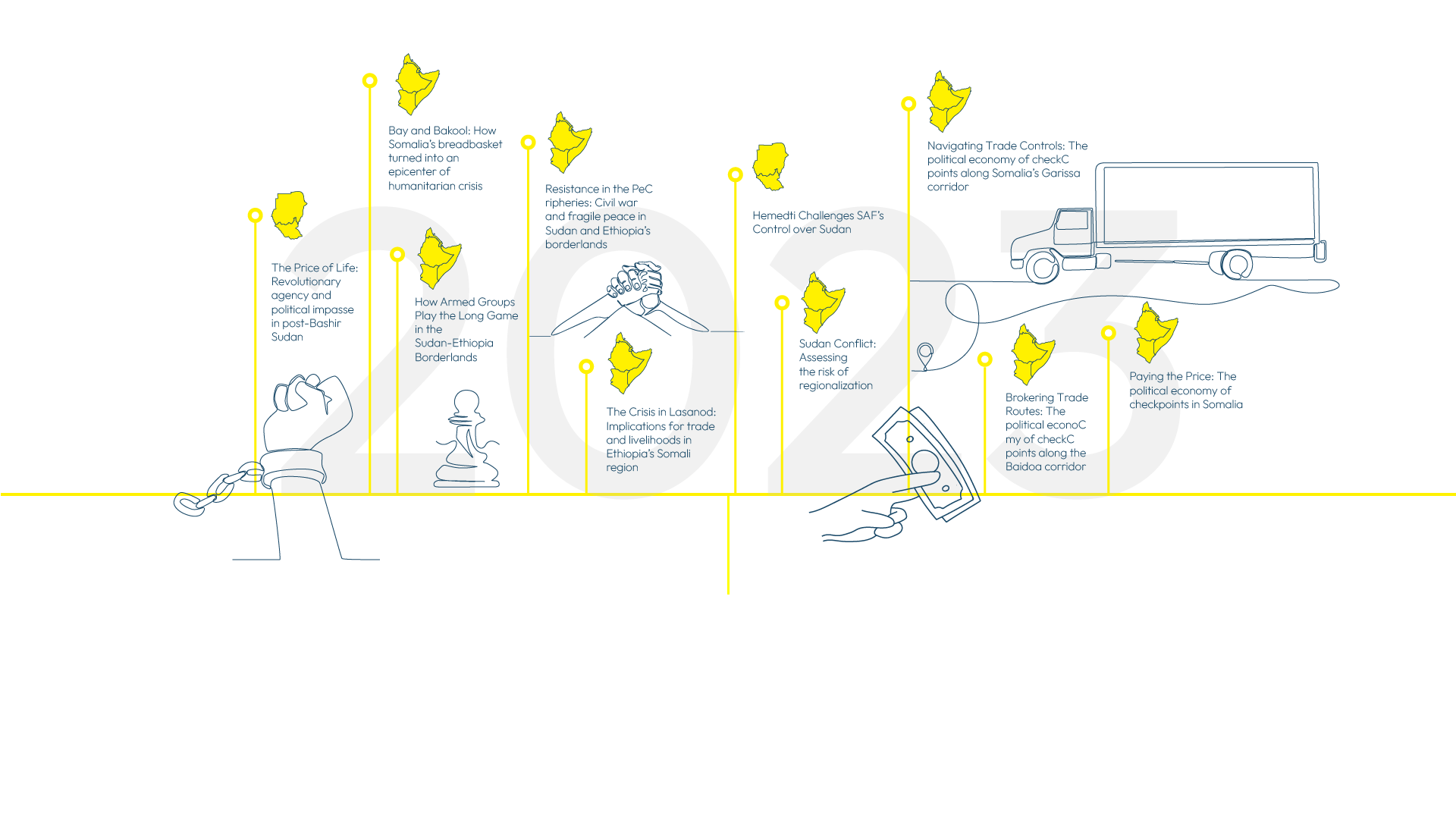
2023: Tensions and Resilience
During 2023, our research explored the political economies of checkpoints, trade routes and conflict resilience. We examined how trade controls and regional conflicts shaped both local economies and political stability in Somalia, Sudan and Ethiopia.
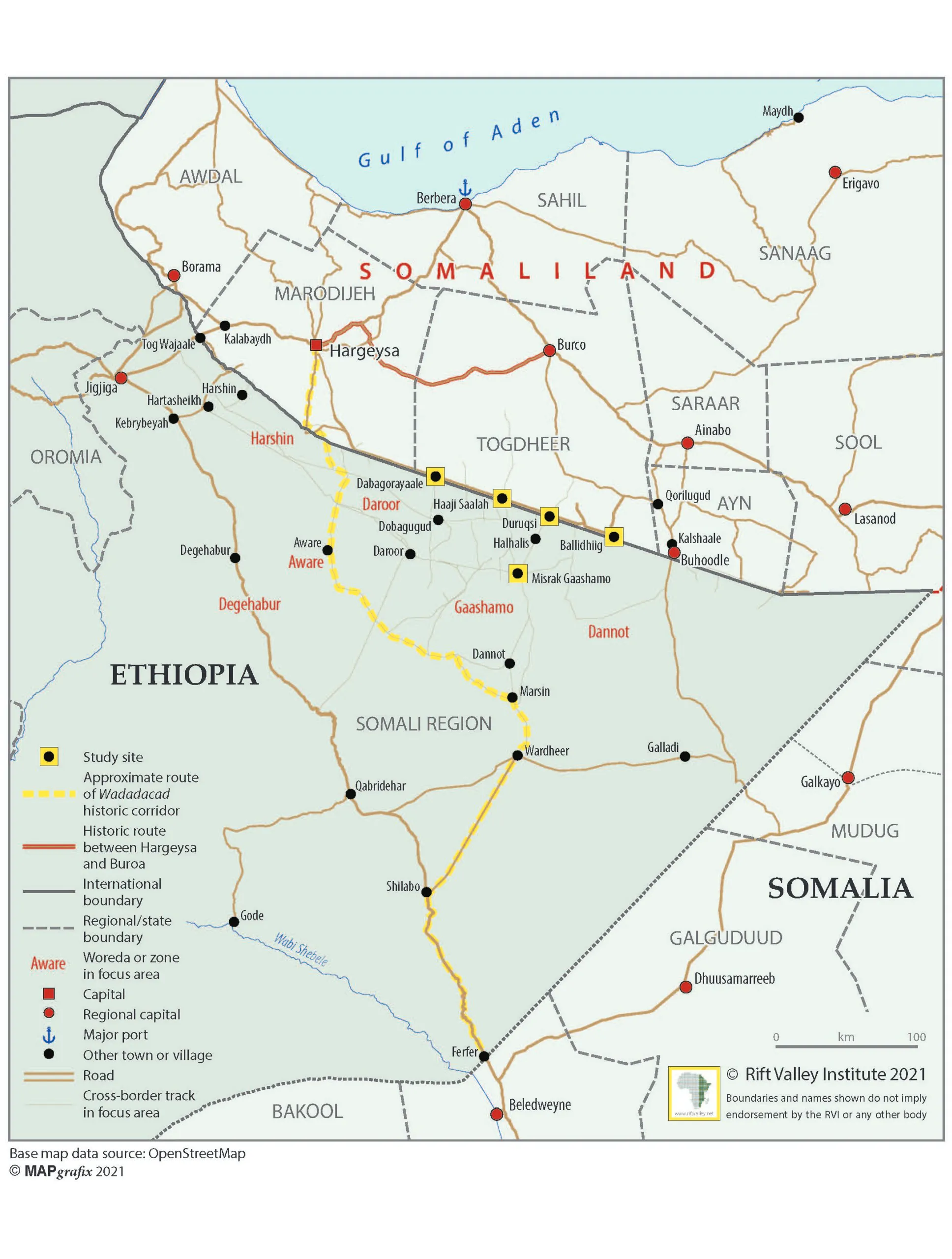
Briefing Paper
2023
The Crisis in Lasanod
Implications for trade and livelihoods in Ethiopia’s Somali region
HORN OF AFRICA
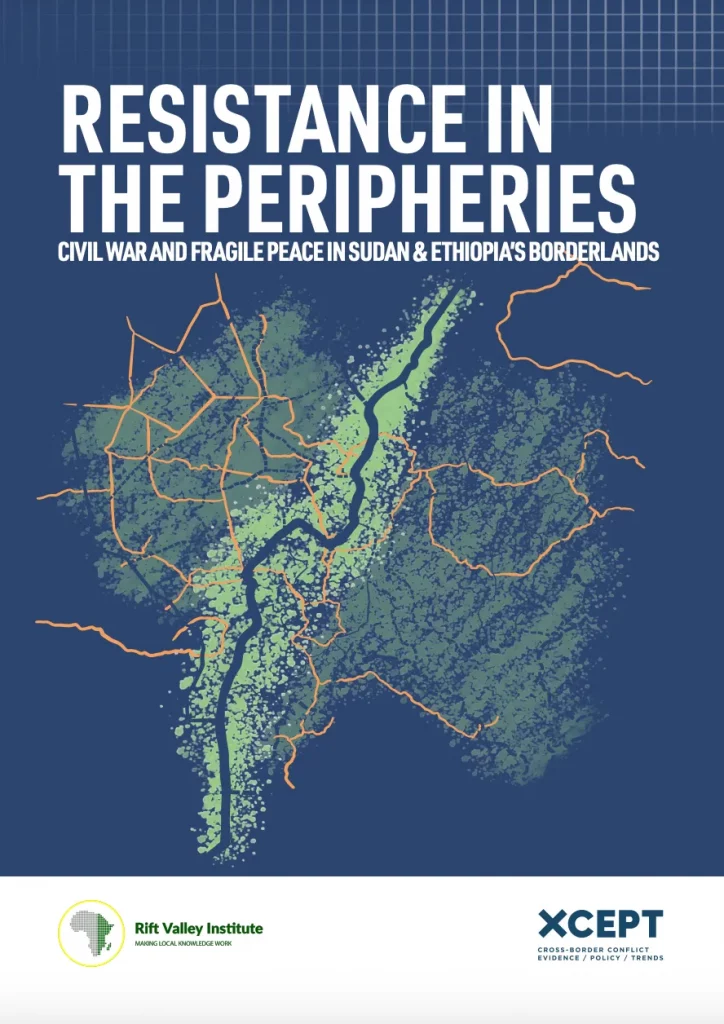
Research Paper
2023
Resistance in the Peripheries
Civil war and fragile peace in Sudan & Ethiopia’s borderlands
HORN OF AFRICA
SUDAN AND SOUTH SUDAN
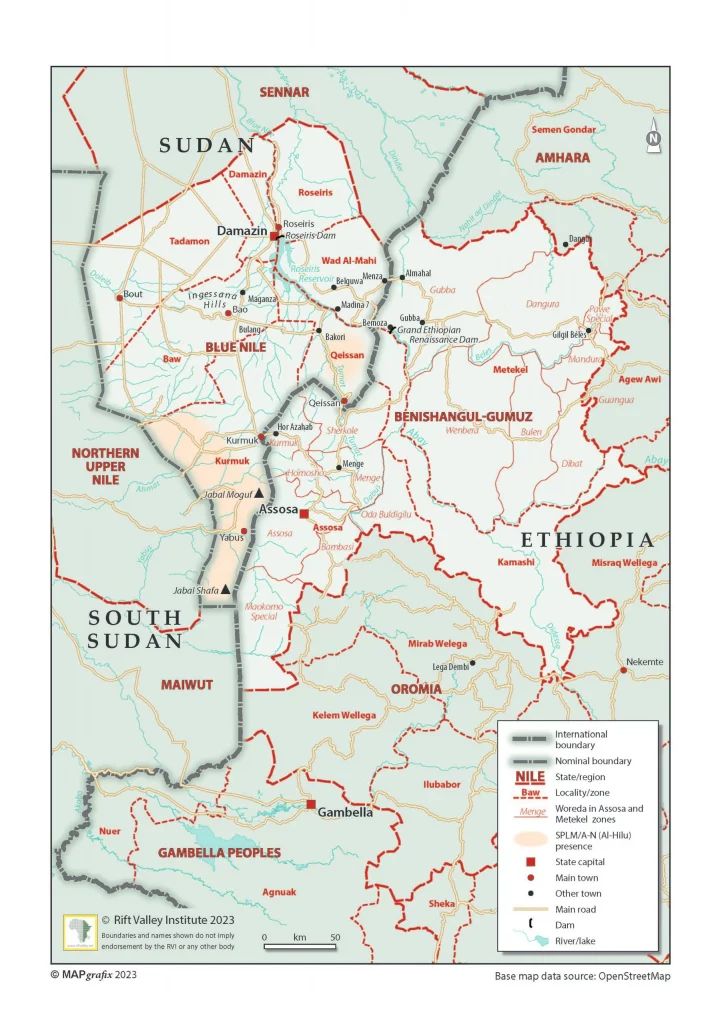
Briefing Paper
2023
How Armed Groups Play the Long Game In the Sudan-Ethiopia Borderlands
HORN OF AFRICA
SUDAN AND SOUTH SUDAN
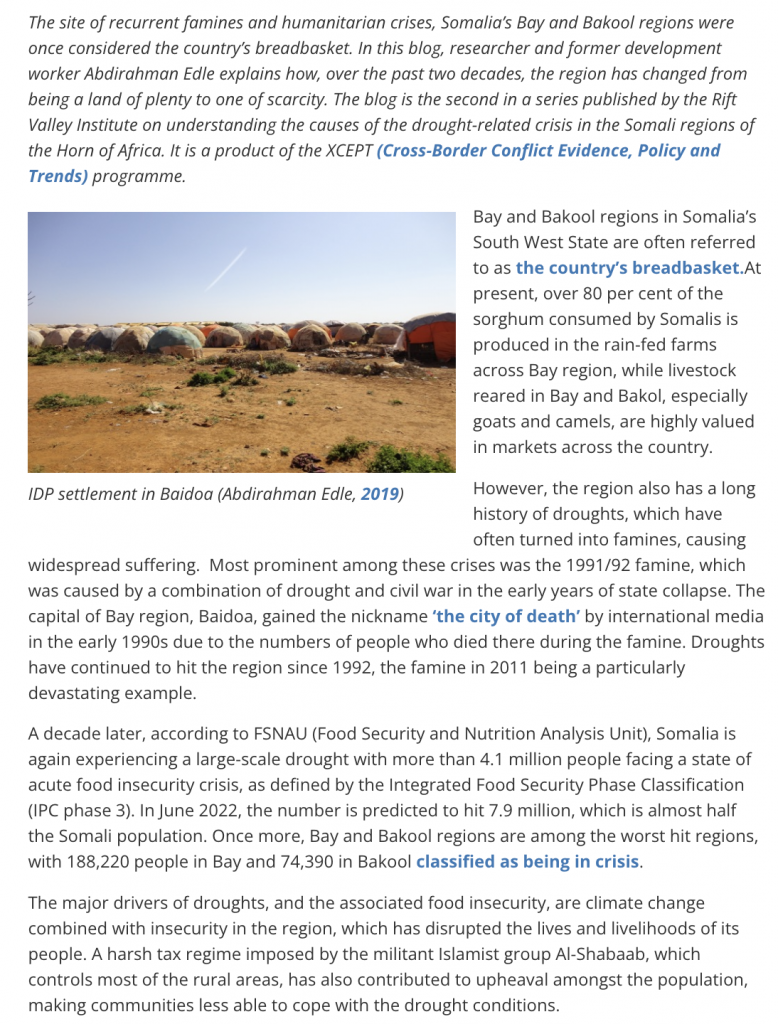
Blog
2023
Bay and Bakool
How Somalia’s breadbasket turned into an epicenter of humanitarian crisis
HORN OF AFRICA
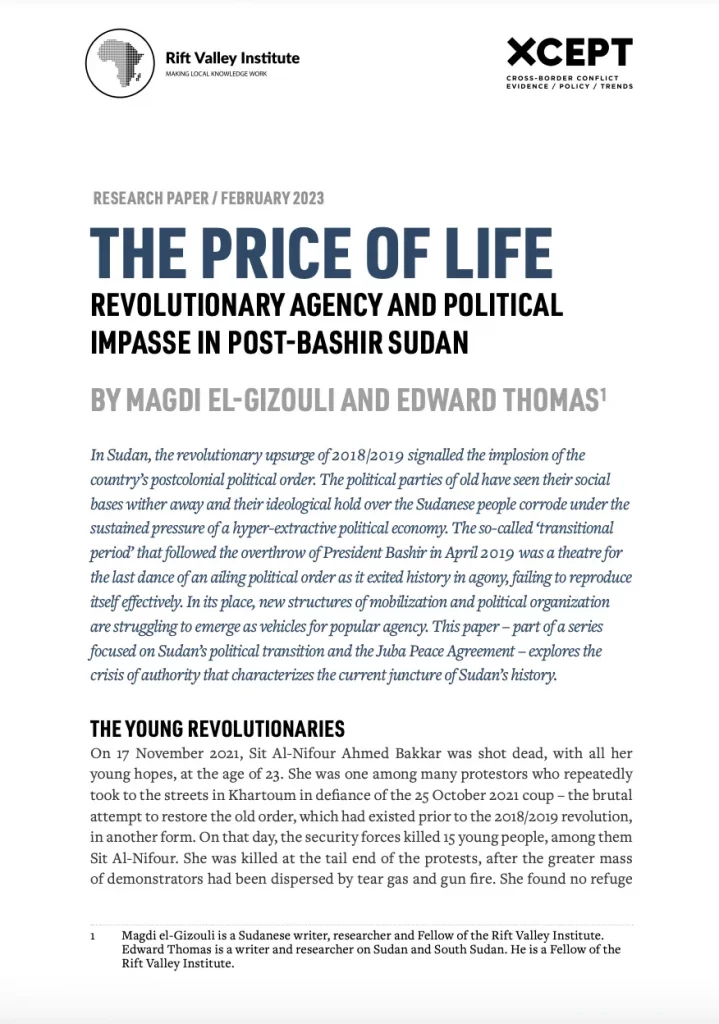
Research Paper
2023
The Price of Life
Revolutionary agency and political impasse in post-Bashir Sudan
SUDAN AND SOUTH SUDAN
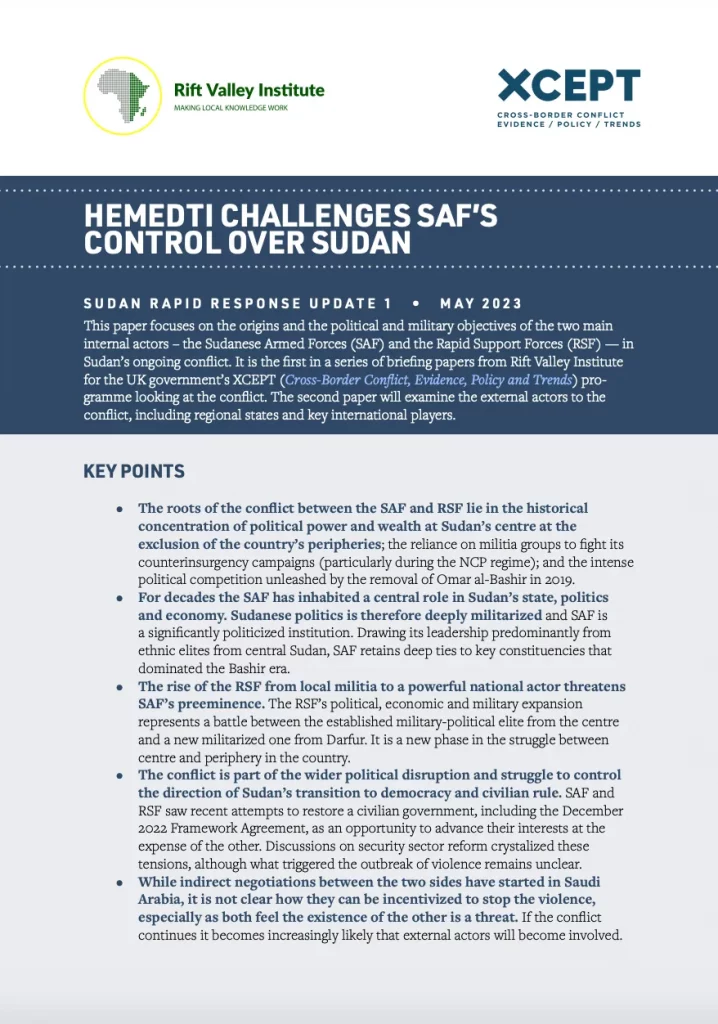
Briefing Paper
2023
Hemedti Challenges SAF's Control Over Sudan
SUDAN AND SOUTH SUDAN
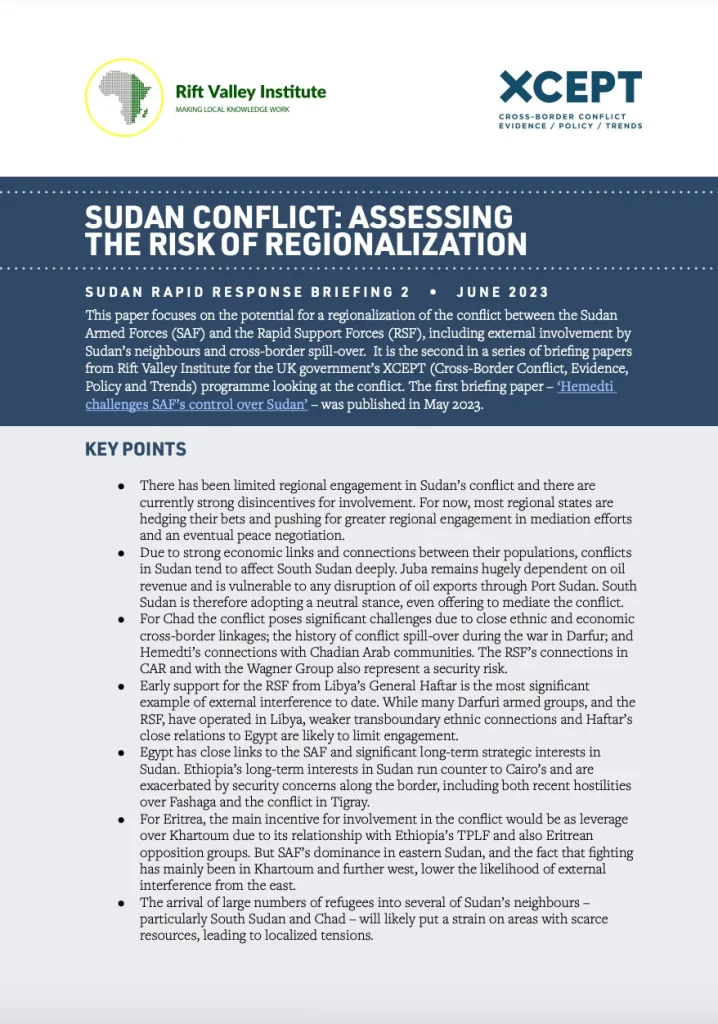
Briefing Paper
2023
Sudan Conflict
Assessing the risk of regionalization
SUDAN AND SOUTH SUDAN
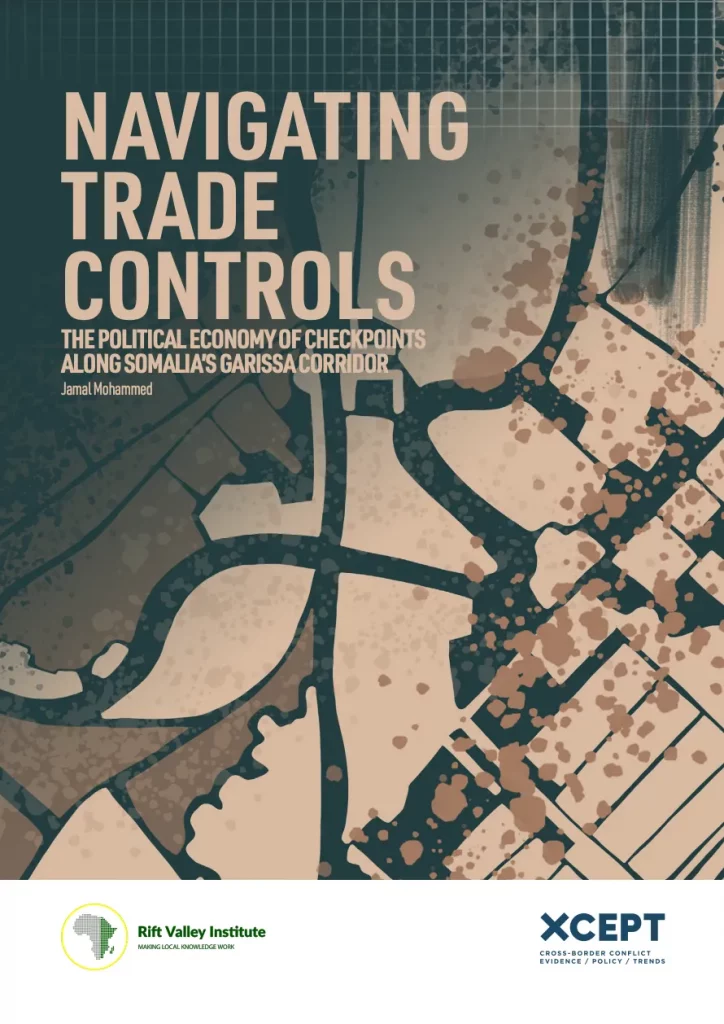
Research Paper
2023
Navigating Trade Controls
The political economy of checkpoints along Somalia’s Garissa corridor
HORN OF AFRICA
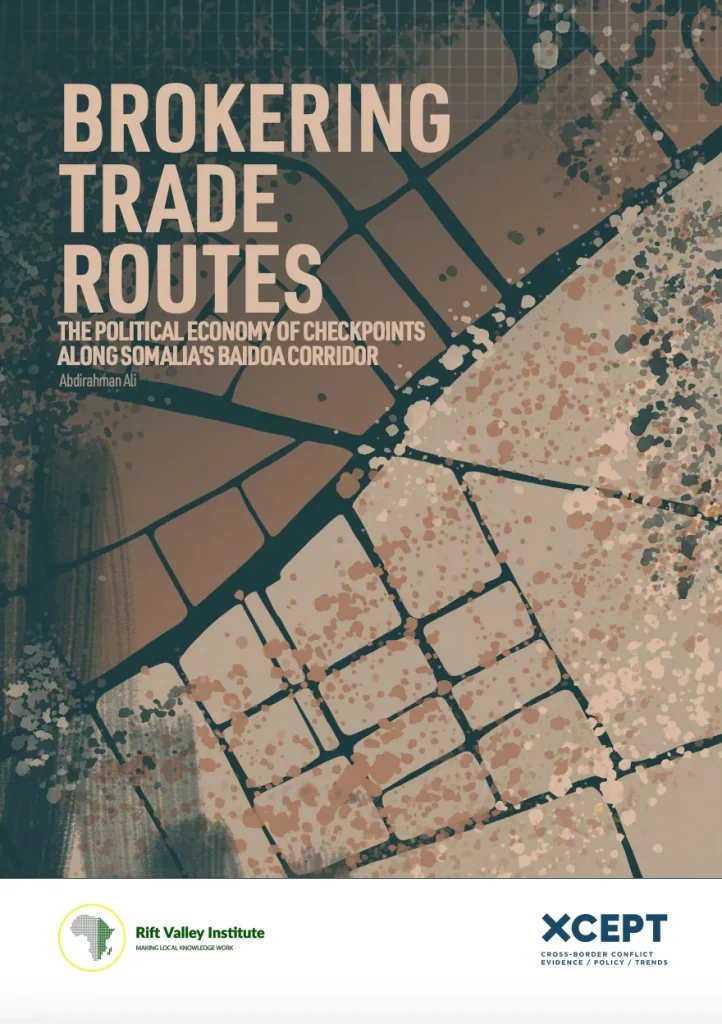
Research Paper
2023
Brokering Trade Routes
The political economy of checkpoints along the Baidoa corridor summary
HORN OF AFRICA
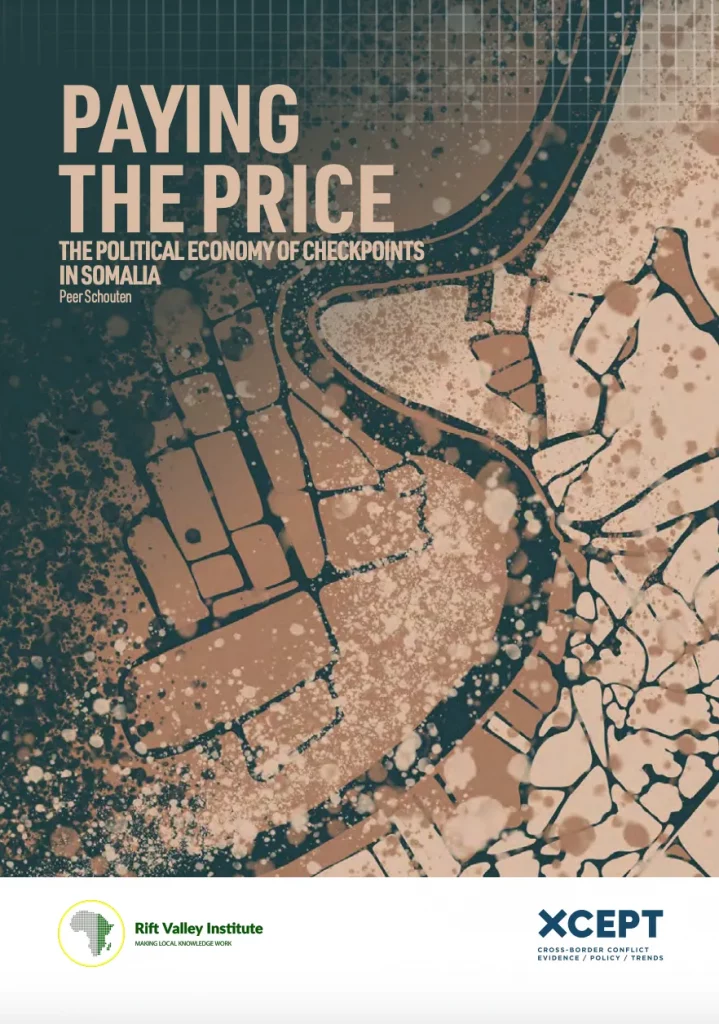
Research Paper
2023
Paying the Price
The political economy of checkpoints in Somalia
HORN OF AFRICA
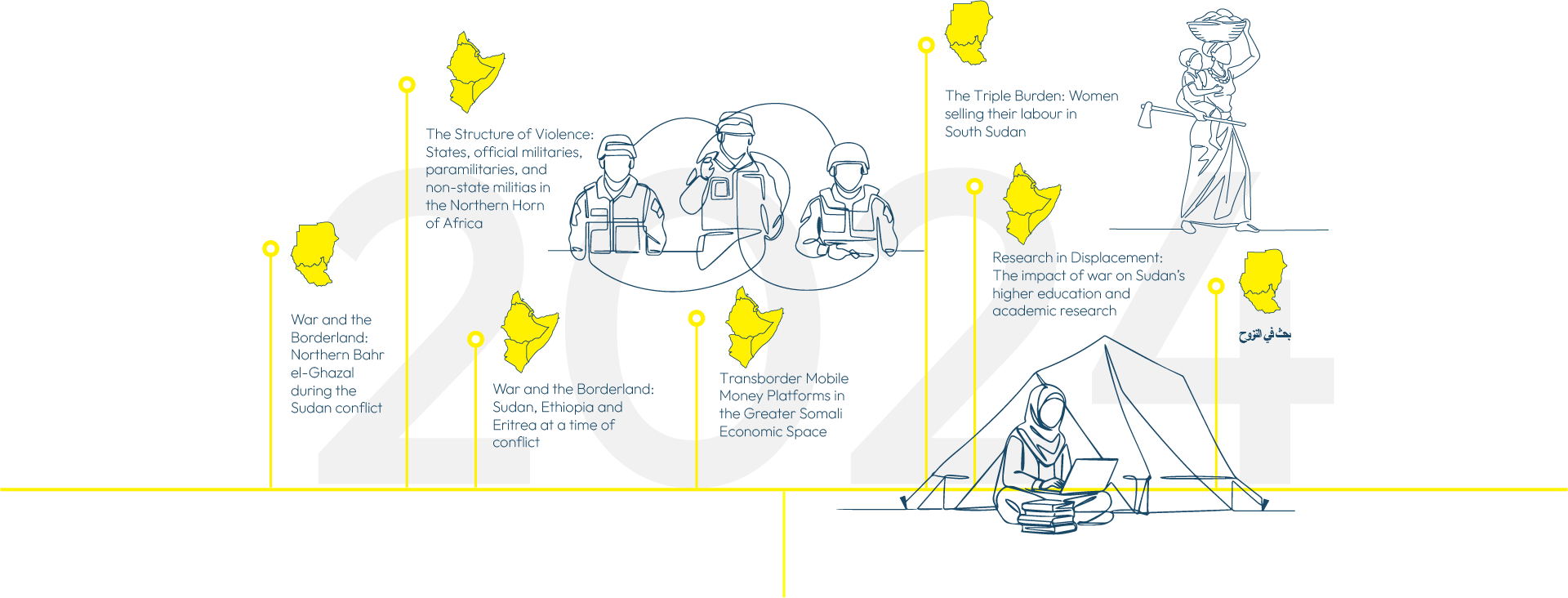
2024: Reflections and Looking Ahead
As we approach the project’s conclusion, our research has focused on the roles of women in South Sudan’s labour market, mobile money platforms in Somali economic spaces, and the impacts of conflict in Sudan. We can look forward to a few more publications this year and into 2025, including a synthesis report that brings together insights from the past six years.
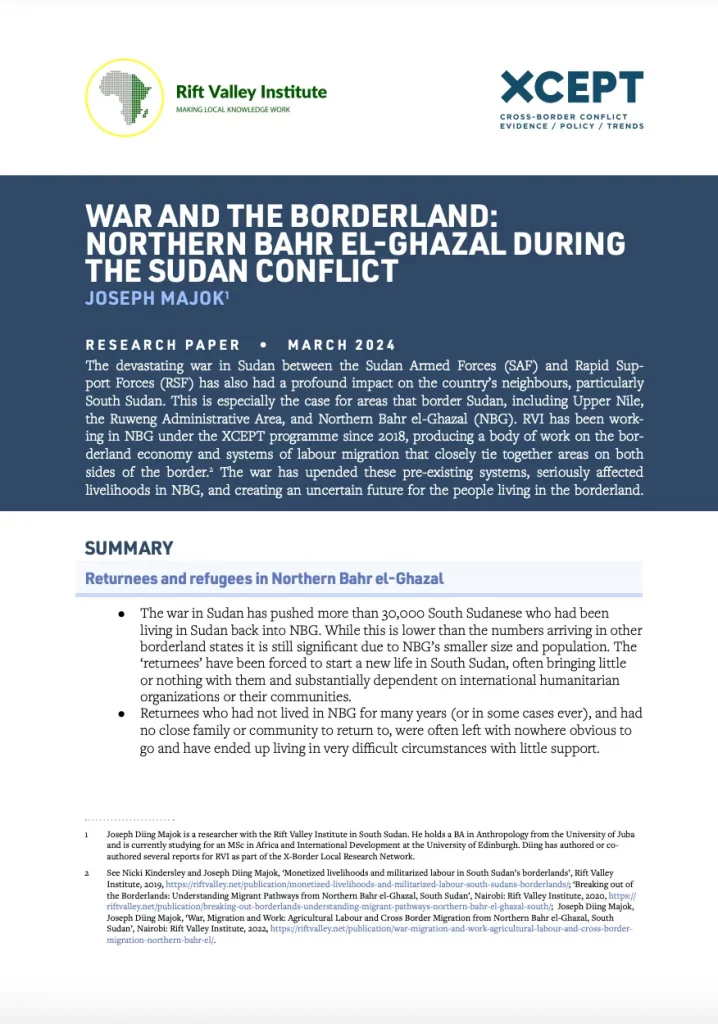
Research Paper
2024
War and the Borderland
Northern Bahr el-Ghazal during the Sudan conflict
SUDAN AND SOUTH SUDAN
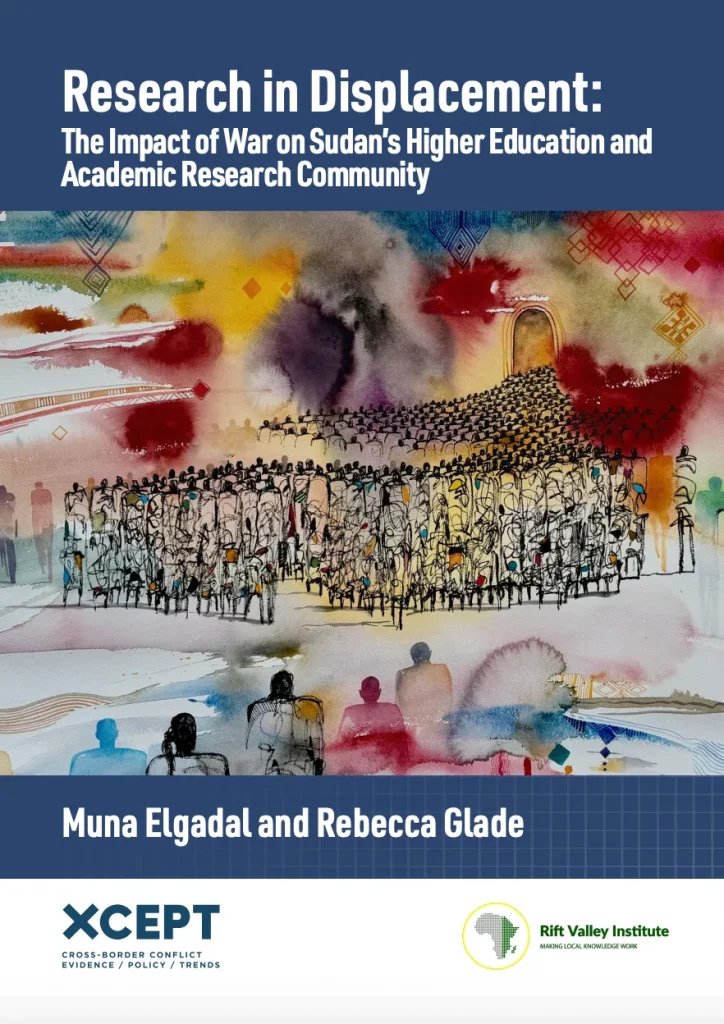
Research Paper
2024
Research in Displacement
The impact of war on Sudan’s higher education and academic research
Sudan and South Sudan
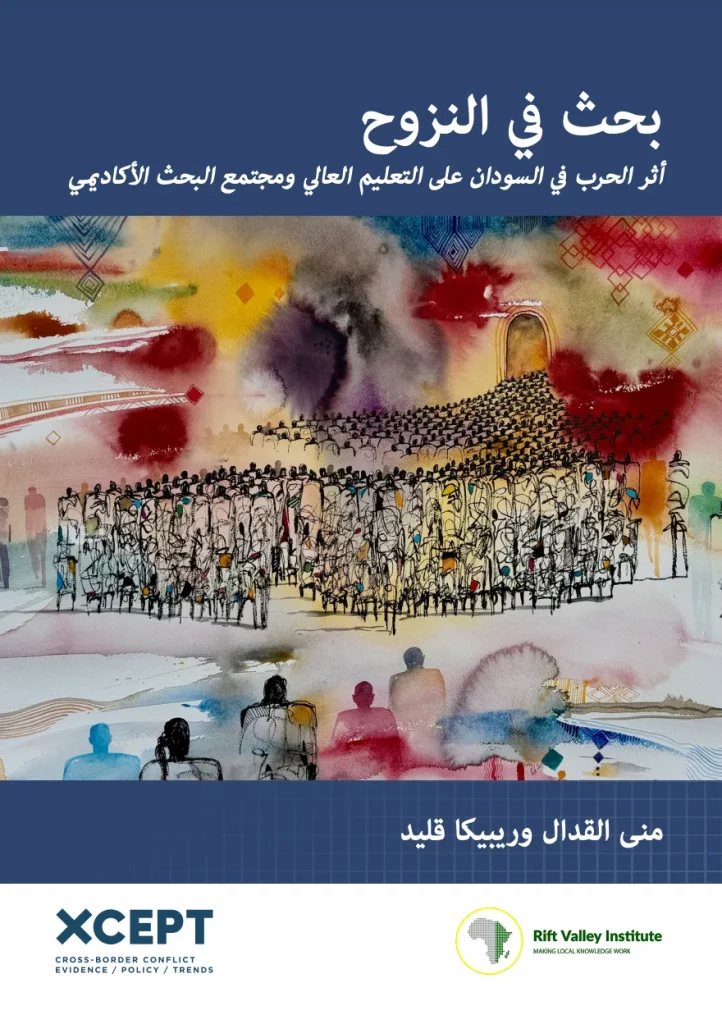
Research Paper
2024
Sudan and South Sudan
أثر الحرب في السودان على التعليم العالي ومجتمع البحث الأكاديمي
خلف اندلاع الحرب في السودان في أبريل 2023 دماراً ومعاناة لا حصر لها، مما شكل تهديداً لمؤسسات مهمة على امتداد القطر. ومن ضمنها مؤسسات التعليم العالي السودانية، التي لم تواجه تدميراً للمنشآت المهمة فحسب، لكن أيضاً النزوح الجماعي للطلاب وهيئات التدريس. يقيّم هذا التقرير مدى الدمار، والكيفية التي ظلت بها هذه المؤسسات تعمل، إلى حد ما، رغم الظروف البالغة الصعوبة. كما أنه يُلقي الضوء على تجارب الأكاديميين والطلاب السودانيين في النزوح، فيما يحاولون أن يواصلوا أعمالهم، ويعيدوا بناء حيواتهم ـ داخل السودان، وفي الأقطار المجاورة على حدٍّ سواء.
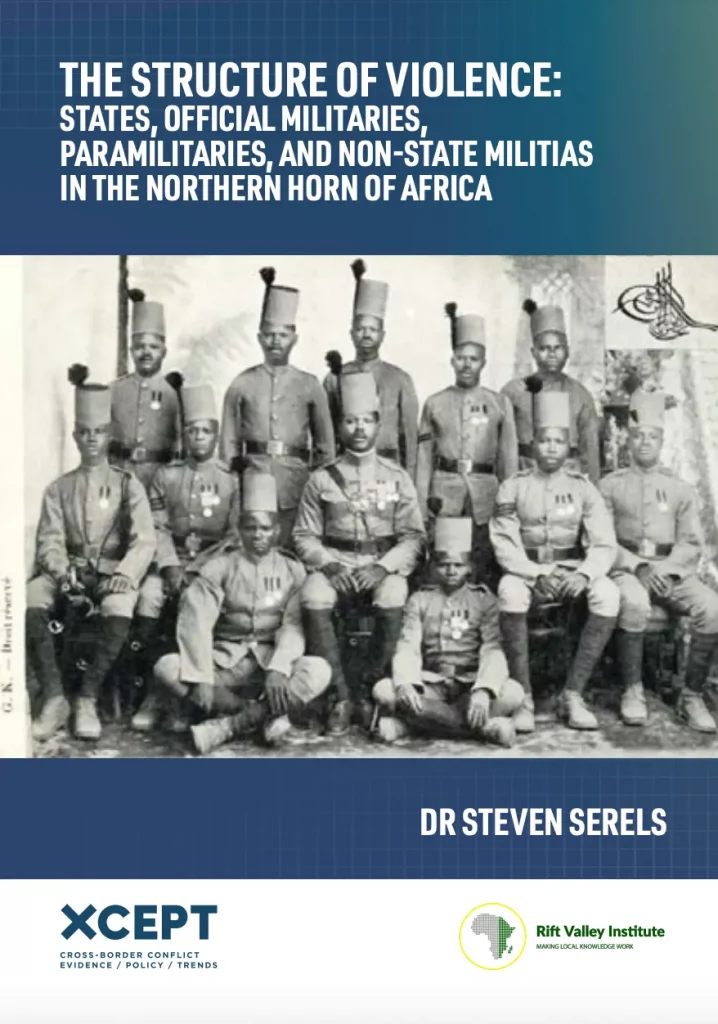
Research Paper
2024
The Structure of Violence
States, official militaries, paramilitaries and non-state militias in the Northern Horn of Africa
HORN OF AFRICA
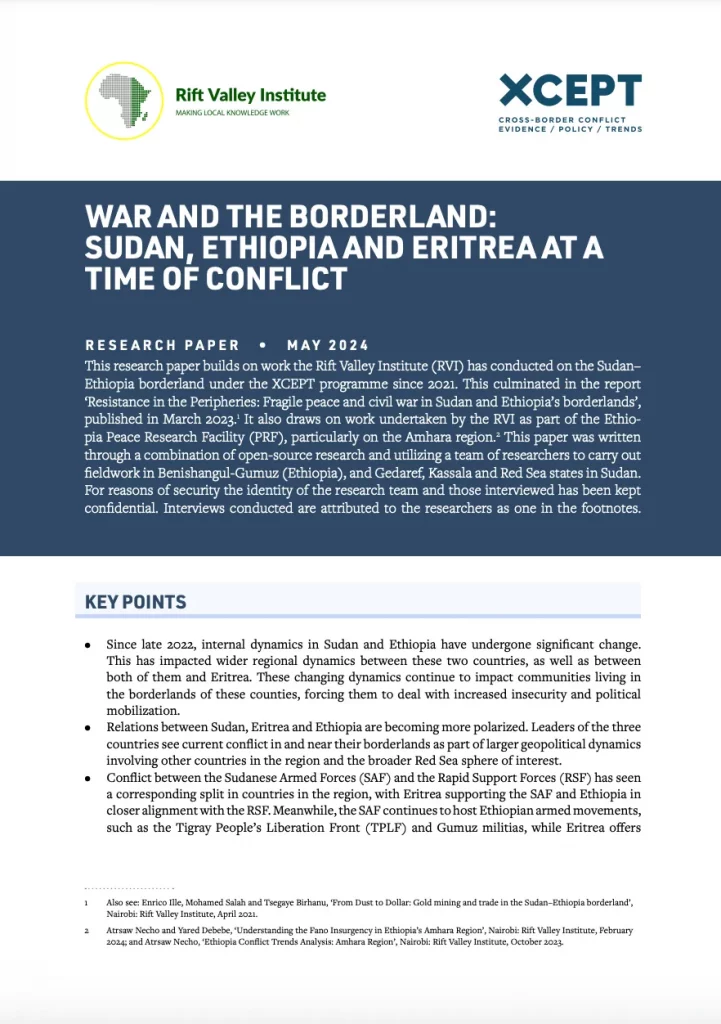
Research Paper
2024
War and the Borderland
Sudan, Ethiopia and Eritrea at a time of conflict
HORN OF AFRICA
SUDAN AND SOUTH SUDAN
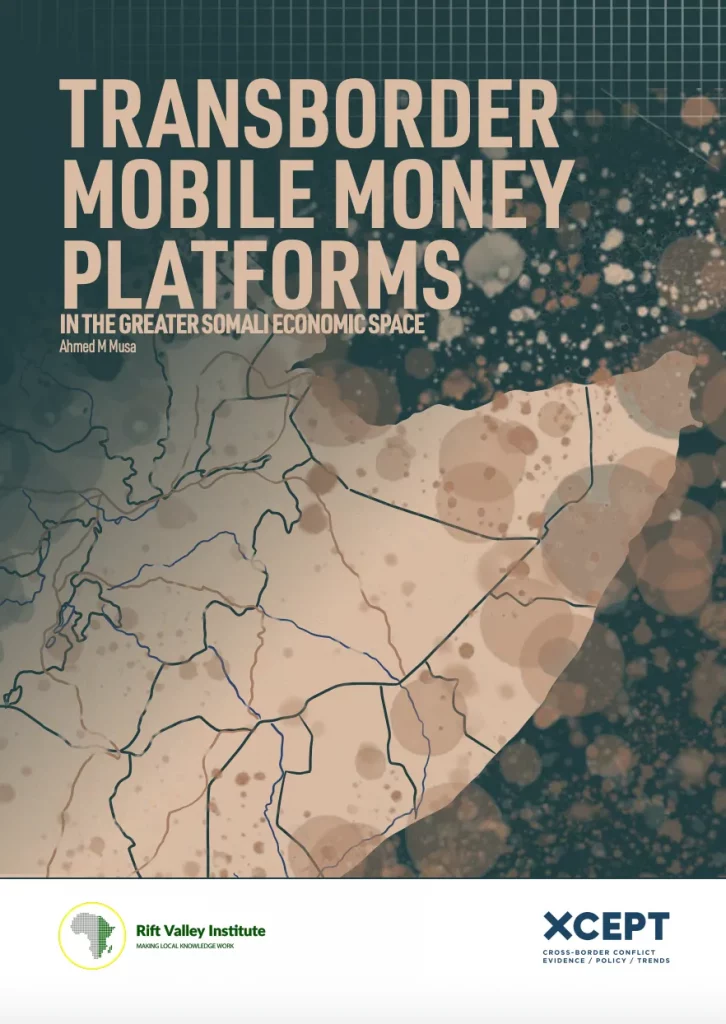
Research Paper
2024
Transborder Mobile Money Platforms in the Greater Somali Economic Space
HORN OF AFRICA
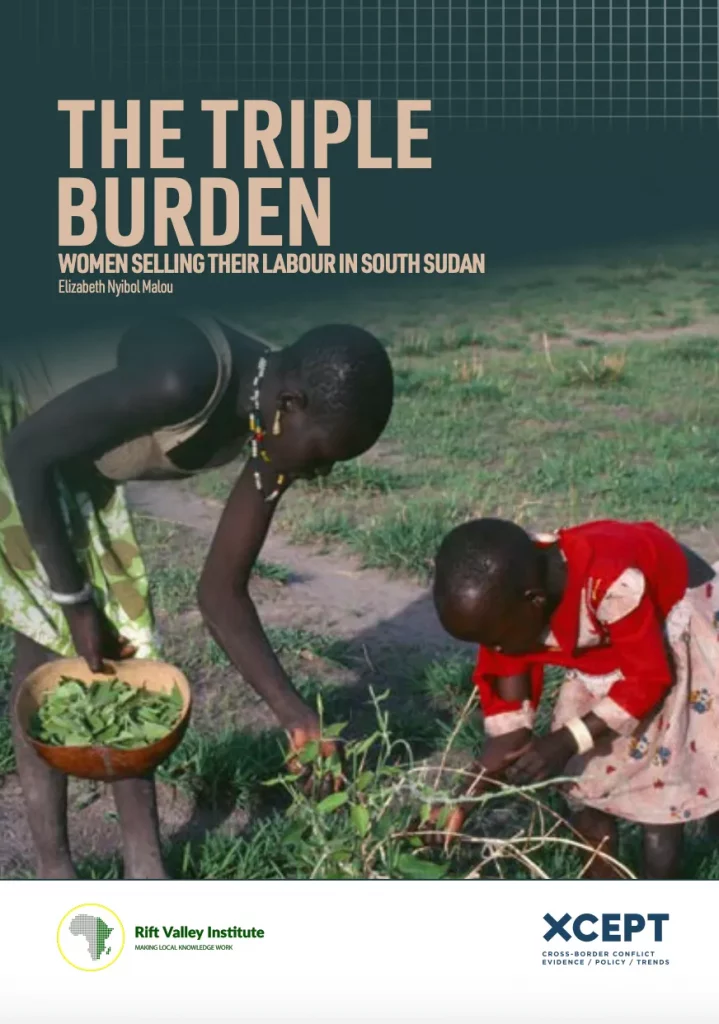
Research Paper
2024
The Triple Burden
Women selling their labour in South Sudan
SUDAN AND SOUTH SUDAN
